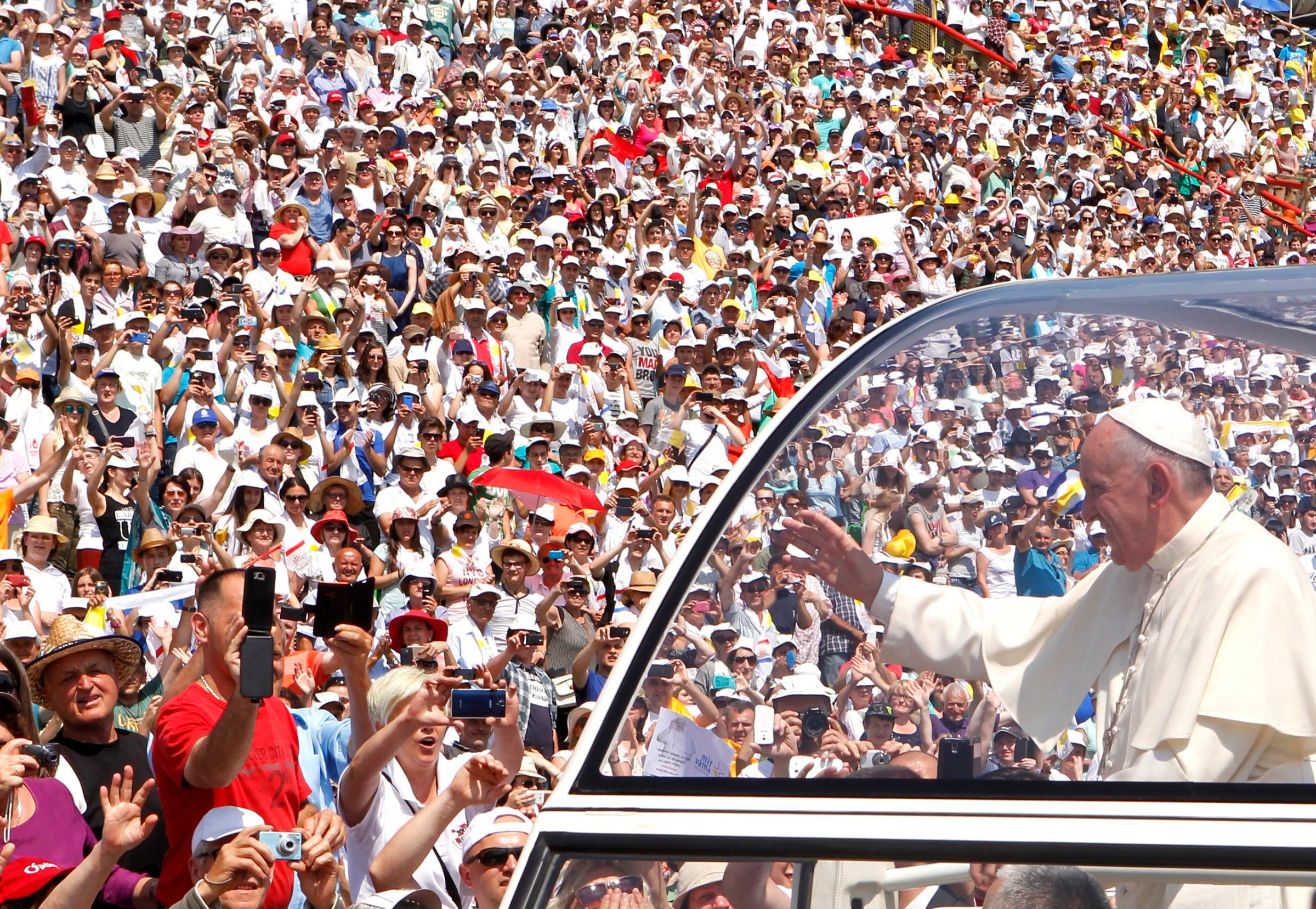
History sometimes turns on little things– a single bullet, a spy’s blurry photograph–and on Aug. 25, 2014, Cardinal Jaime Ortega y Alamino of Havana arrived at the White House to deliver one such object. Ortega had gone to great lengths to cover his tracks. His name does not appear in official White House visitor logs, and he had even arranged an event at Georgetown University that day to explain his presence in the capital. When he arrived at the West Wing he was quickly shown to a secluded patio outside the Oval Office, where President Barack Obama, White House chief of staff Denis McDonough and two other top aides greeted him.
After dispensing with the formalities, the Cardinal took out a letter from Pope Francis to Obama. Ortega informed the Americans that he had delivered the same message days earlier in person to Cuban President Raúl Castro. And then Ortega began to read the Pope’s words out loud. Francis expressed his support for diplomatic talks the U.S. and Cuba had secretly been pursuing in an effort to end a half-century of hostility. He encouraged the two nations to resolve the issue of prisoners, a key sticking point in negotiations. And he offered the Vatican’s assistance to help the two countries overcome their decades of distrust and confrontation.
Francis’ letter was as simple as that, but it made a difference. Two months later, Obama and Castro took Francis up on his offer, dispatching top officials to the privacy of the Vatican for a five-hour session in which they hammered out the details of an agreement to restore full diplomatic relations. And when Obama and Castro sealed the historic deal by telephone on Dec. 16, 2014, they found common ground expressing their gratitude to the Pope. Most important, the Pope’s letter offered symbolic shelter for both sides as they weighed the political costs of reconciliation. Francis’ popularity as a religious figure in the U.S. gave Obama cover as he cut a deal with godless communists across the Straits of Florida, while the Pope’s credibility as a Latin American shielded Castro as he got in bed with Yankee capitalists. “[The Cubans] were very clear with us that they saw Pope Francis as different from previous Popes,” says Deputy National Security Adviser Ben Rhodes, who was present at the meeting with Ortega and the talks in Rome, “because of his stature as the first Pope from Latin America.”
That difference will be on full display when Francis arrives in Cuba on Sept. 19, ahead of a five-day historic visit to the U.S., and it is key to understanding not just who he is but how he is leading the Vatican on the world stage 30 months into his reign. Francis, 78, rose to prominence as a church leader in the unruly world of Latin American politics of the 1960s and 1970s, and his life and outlook are the products of the developing world. He has never been to the U.S., and his only papal trip to a developed Western country so far was a four-hour stopover in France, the shortest ever by a Pope. Instead he has focused on his spiritual base, traveling almost exclusively to so-called Global South nations, including Sri Lanka, the Philippines, Bolivia and Brazil.
That perspective has infused Vatican diplomacy under Francis with the same paradoxical mix of humility and influence that have defined his papacy so far. Nearly a year after Ortega’s visit, Francis shrugged off his role in the U.S.-Cuba rapprochement, even as he credited divine inspiration for his own part in the talks’ successful outcome. “What could I do with these two who have been going on like this for more than 50 years?” he asked reporters on a return flight from Paraguay to Rome in July. “Then the Lord made me think of a Cardinal, and he went there and talked,” Francis said. “We did hardly anything, only small things.”
But Francis’ small things are proving to be a big deal for the rest of the world. Coaxing U.S.-Cuban reconciliation is just the start: the Pope is making the Holy See a player in the most pressing global issues in a way unseen since the early days of Pope John Paul II. From the outset of his papacy he has drawn attention to the Mediterranean migrant crisis, and in early September he called on Catholic dioceses, including parishes in the Vatican, to house refugee families. Francis routinely speaks out about the persecution of Christians in Syria and Iraq as he pushes for action to end the wars there. He praised the controversial nuclear deal between Iran, the U.S. and five other world powers. His 180-page encyclical on the environment has been called “radical” by one prominent environmentalist and has helped make Francis a perceived front runner for the Nobel Peace Prize. And the State Department has asked the Vatican for help on relocating prisoners from the military prison at Guantánamo Bay, Cuba, so that it can be closed, a top Obama priority, senior Administration officials tell TIME. Secretary of State John Kerry “early on saw Francis as a potentially activist foreign policy Pope,” says one senior State official.
The Most Surprising Photos of Pope Francis
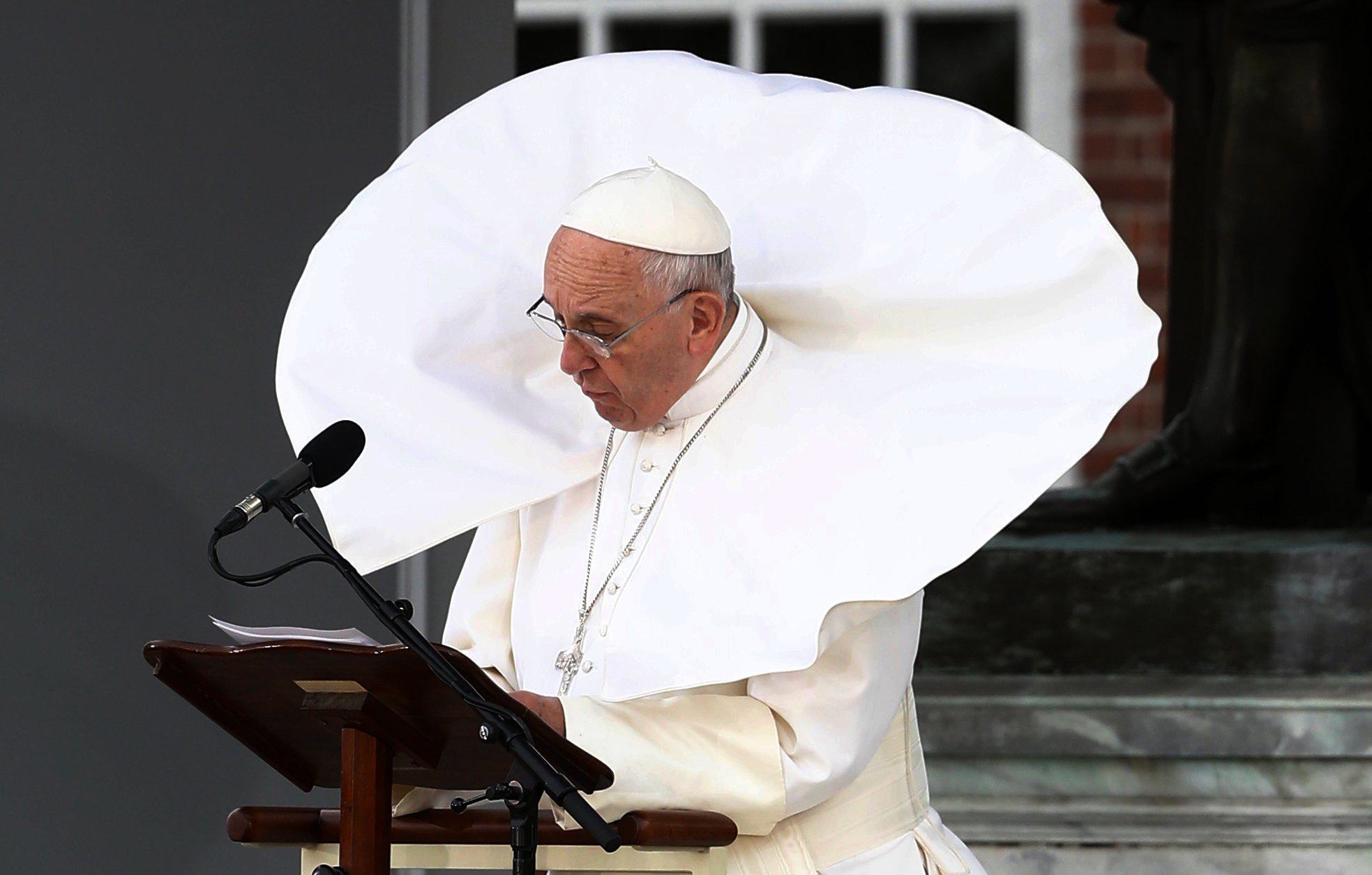
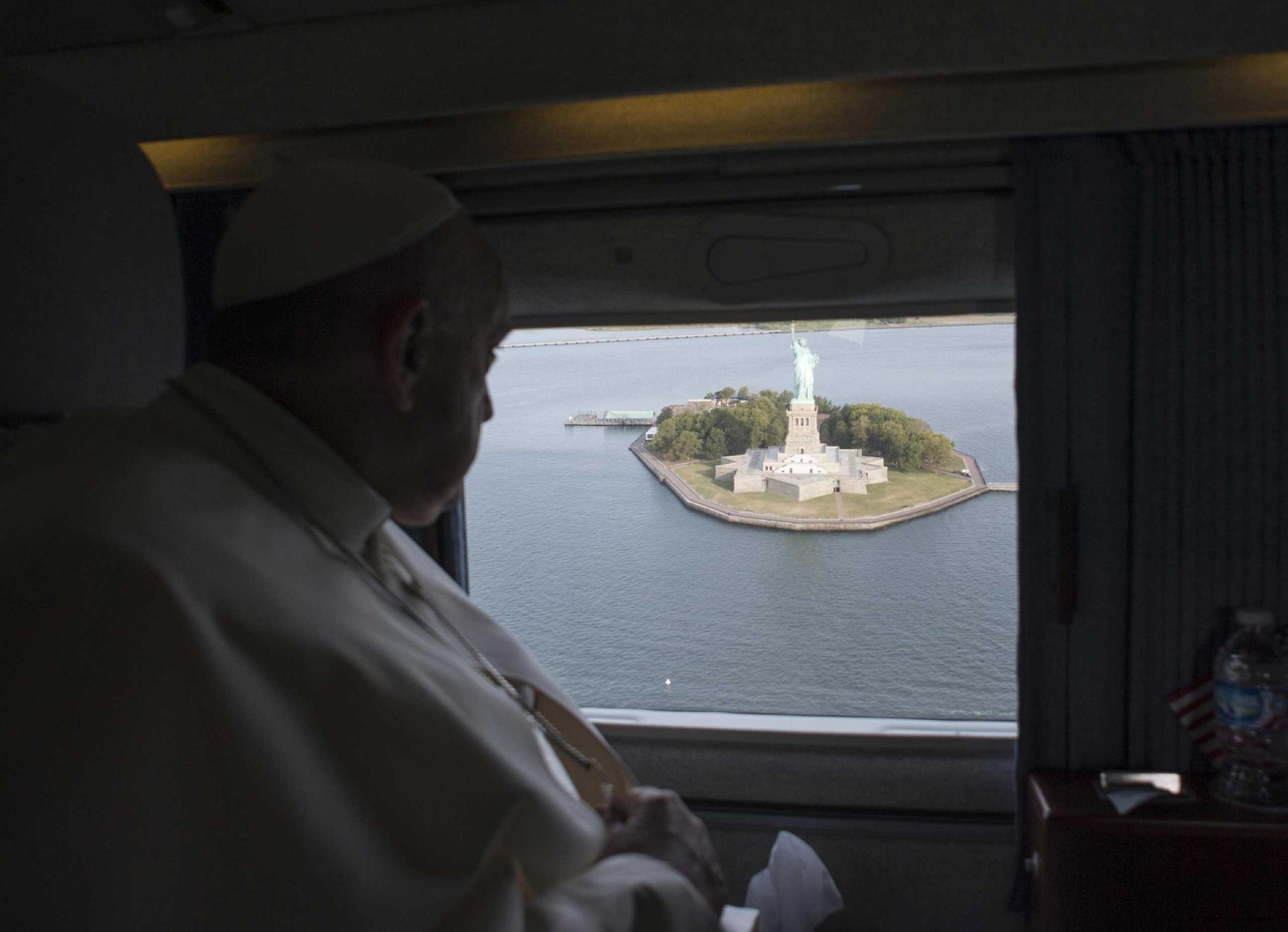
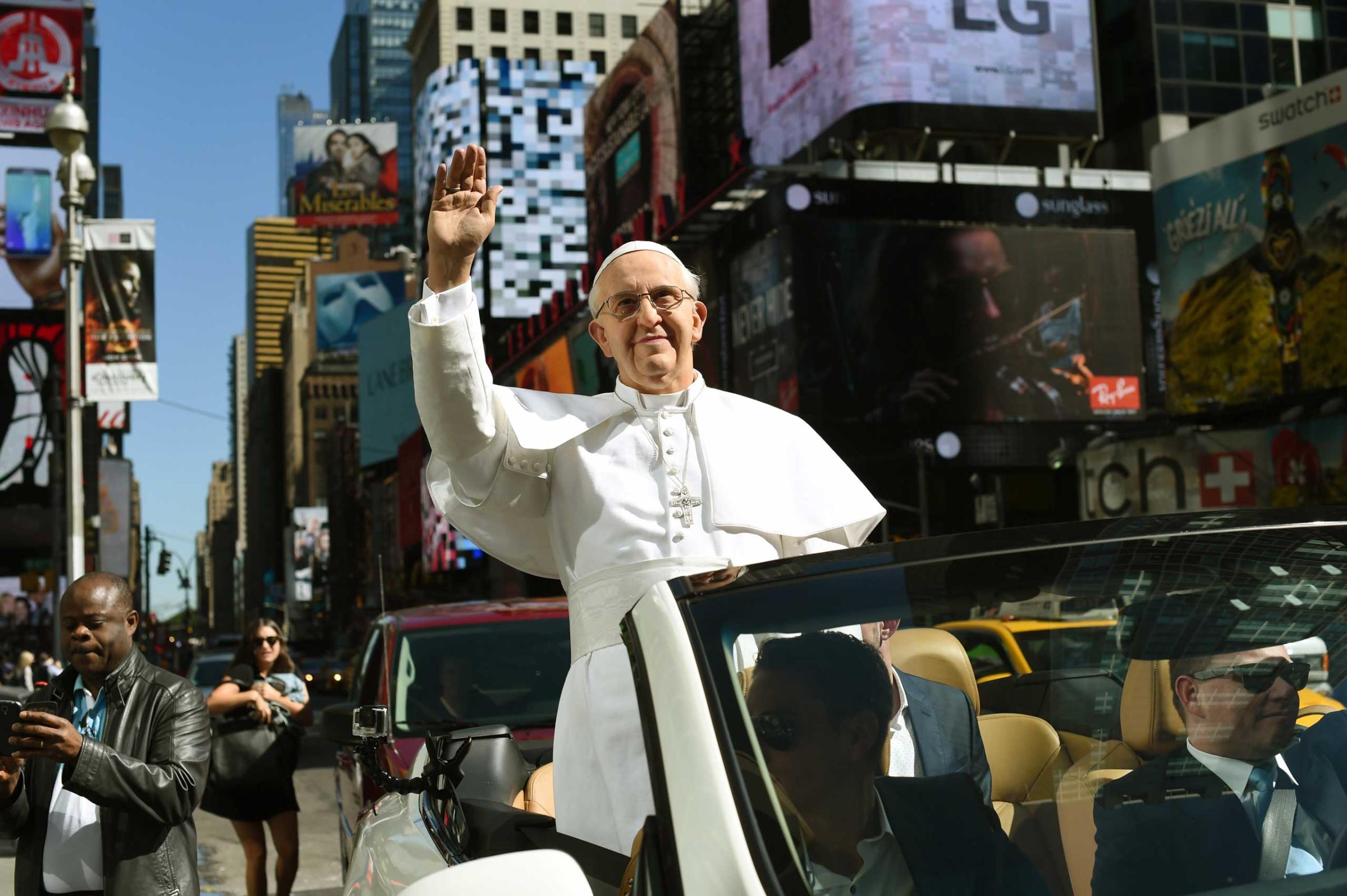
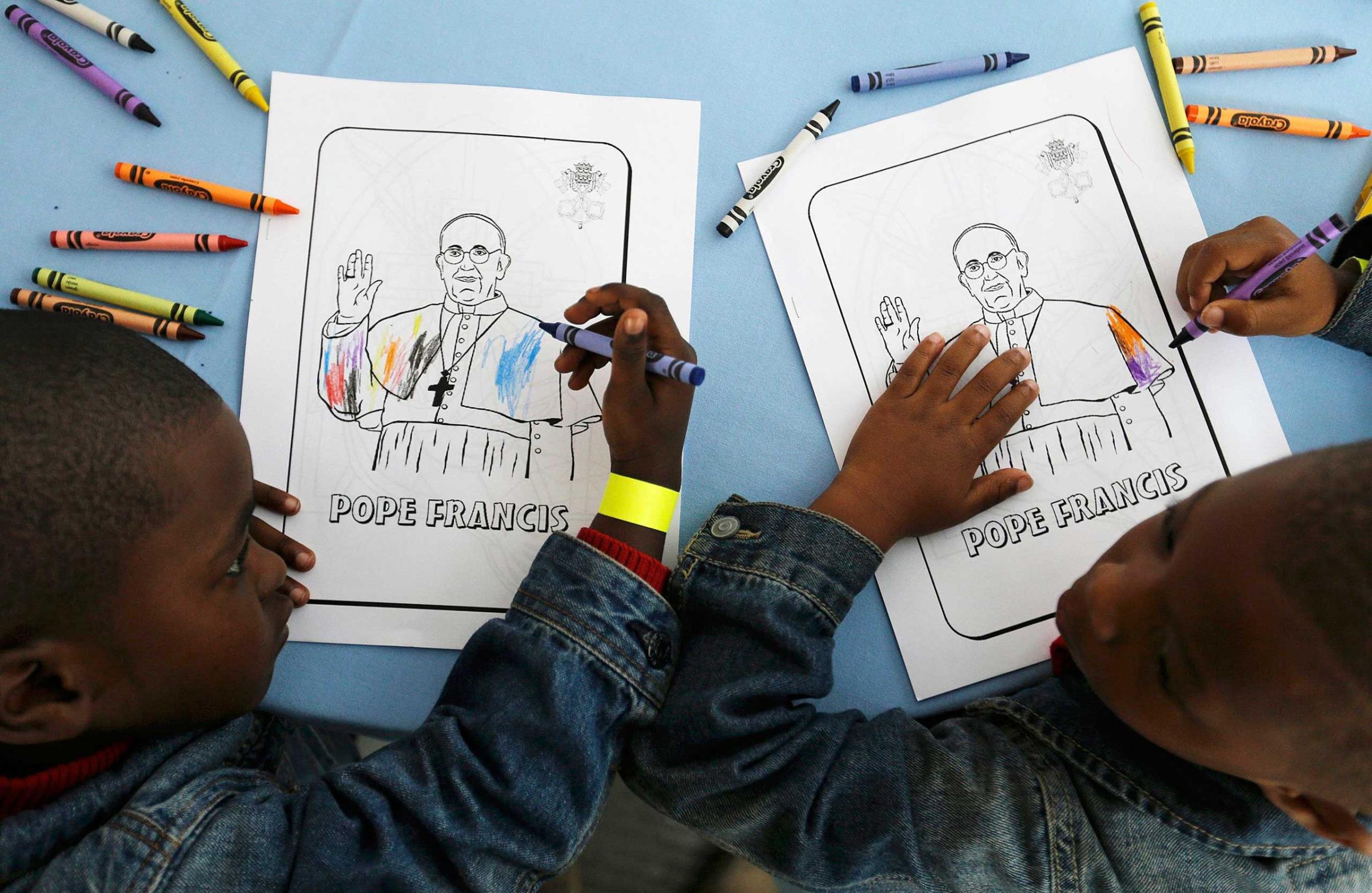
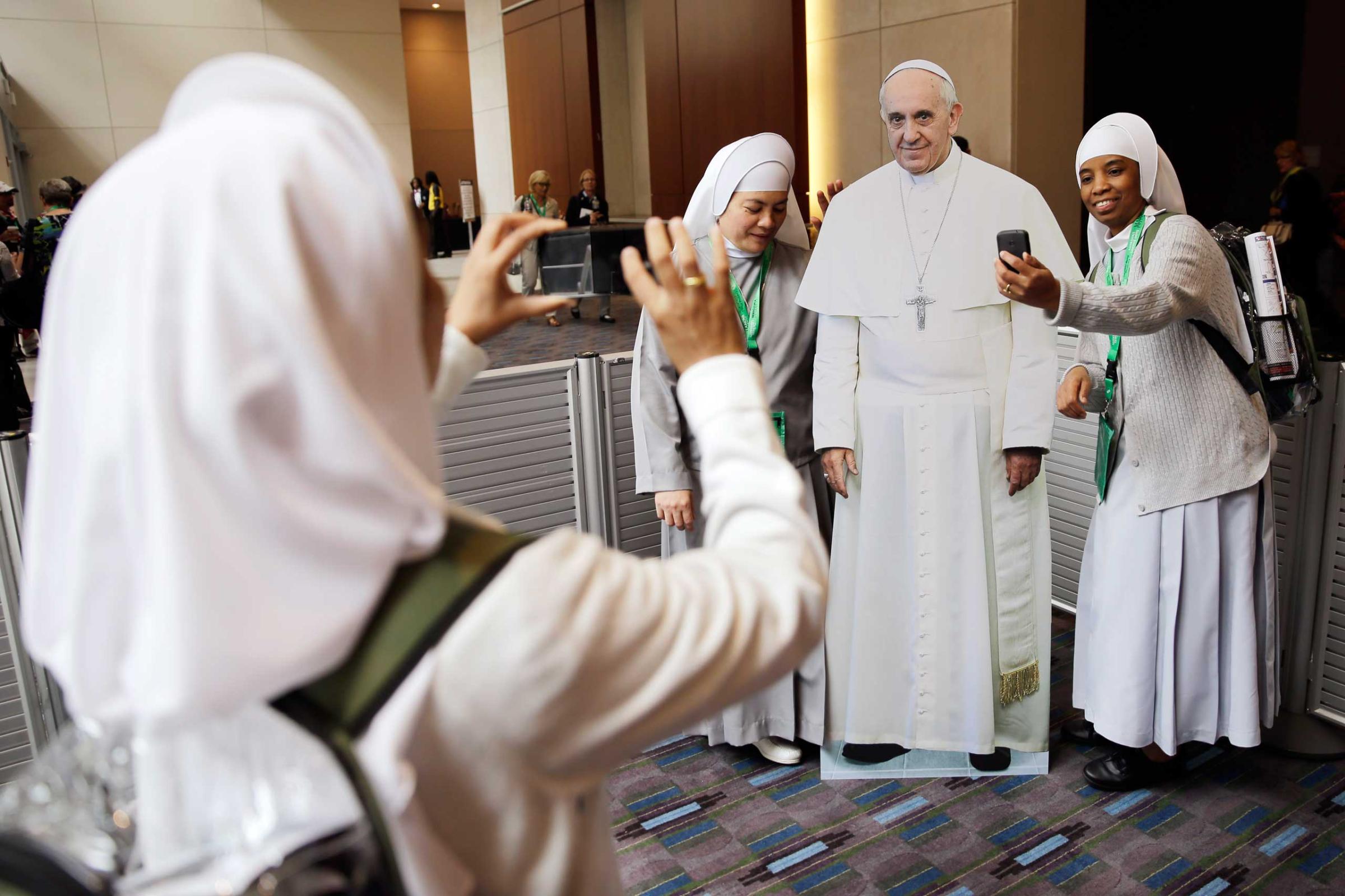
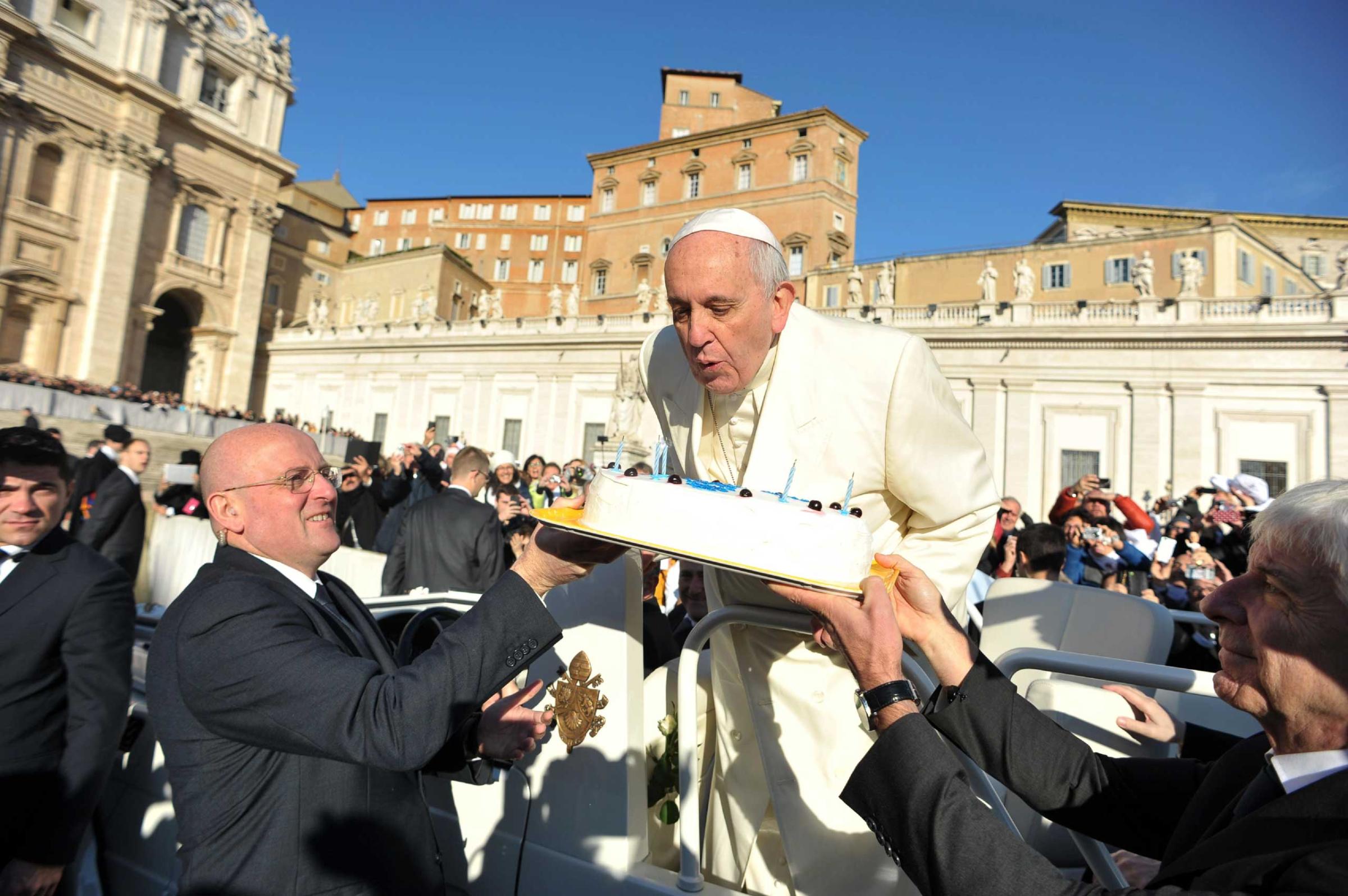
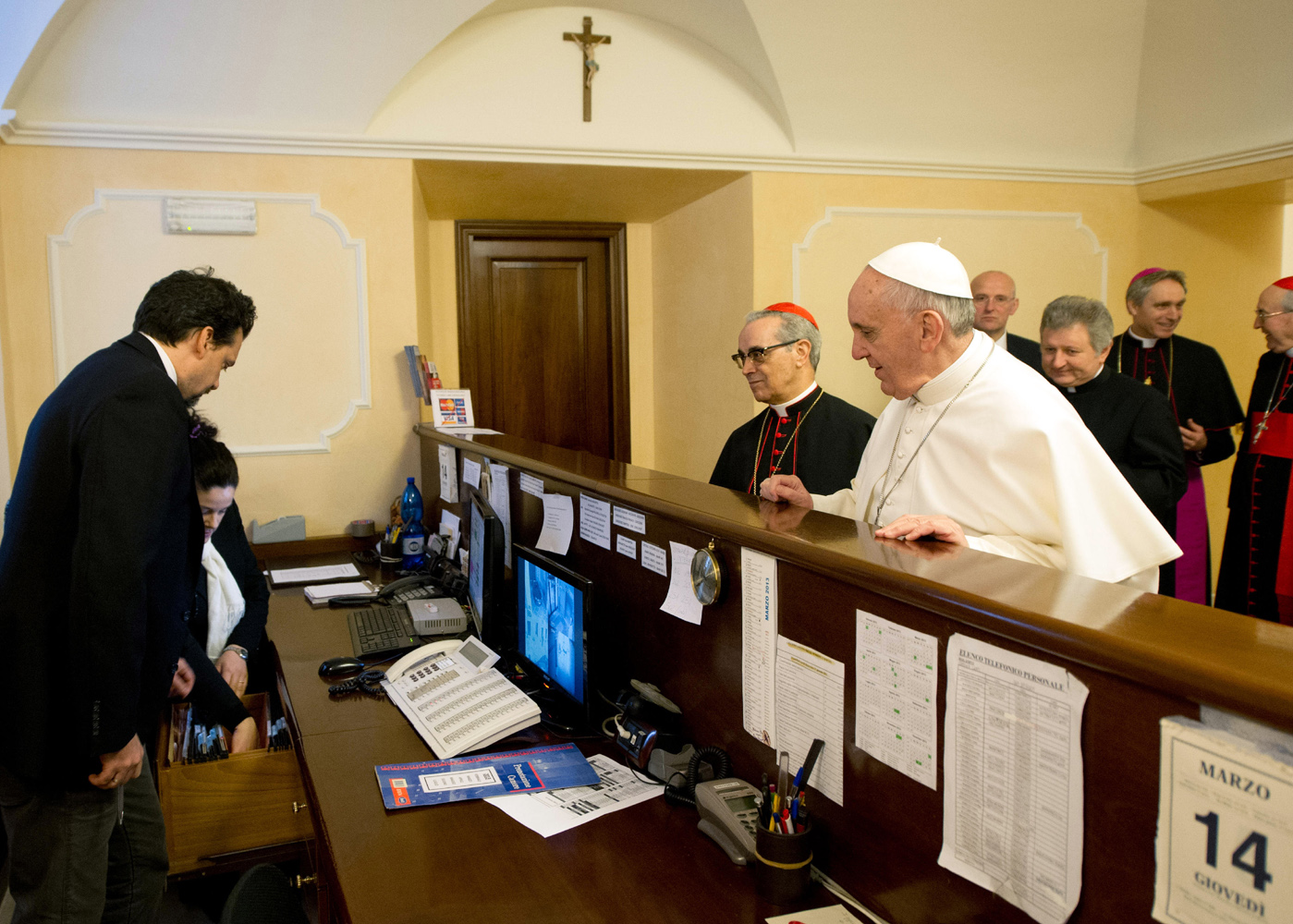
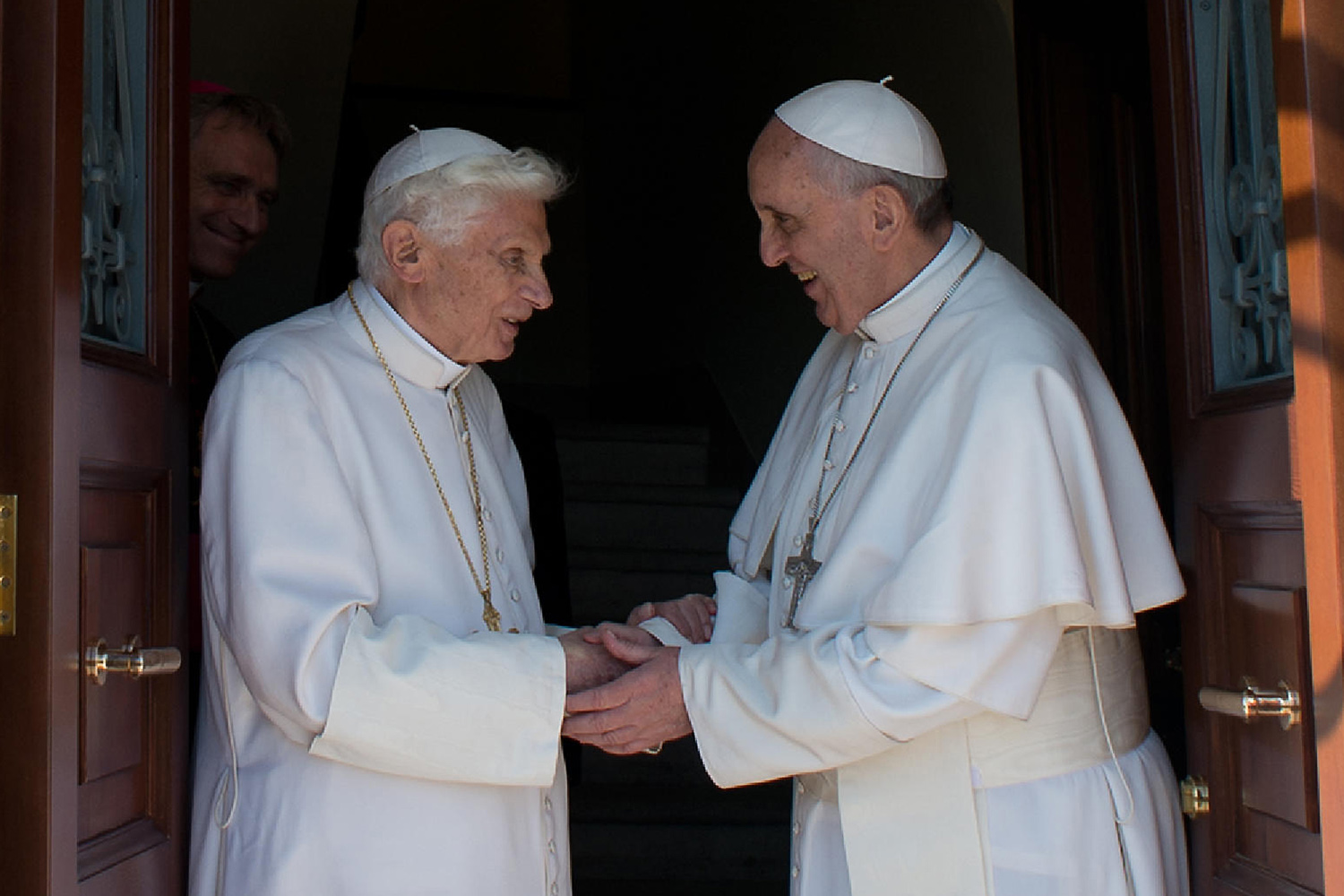
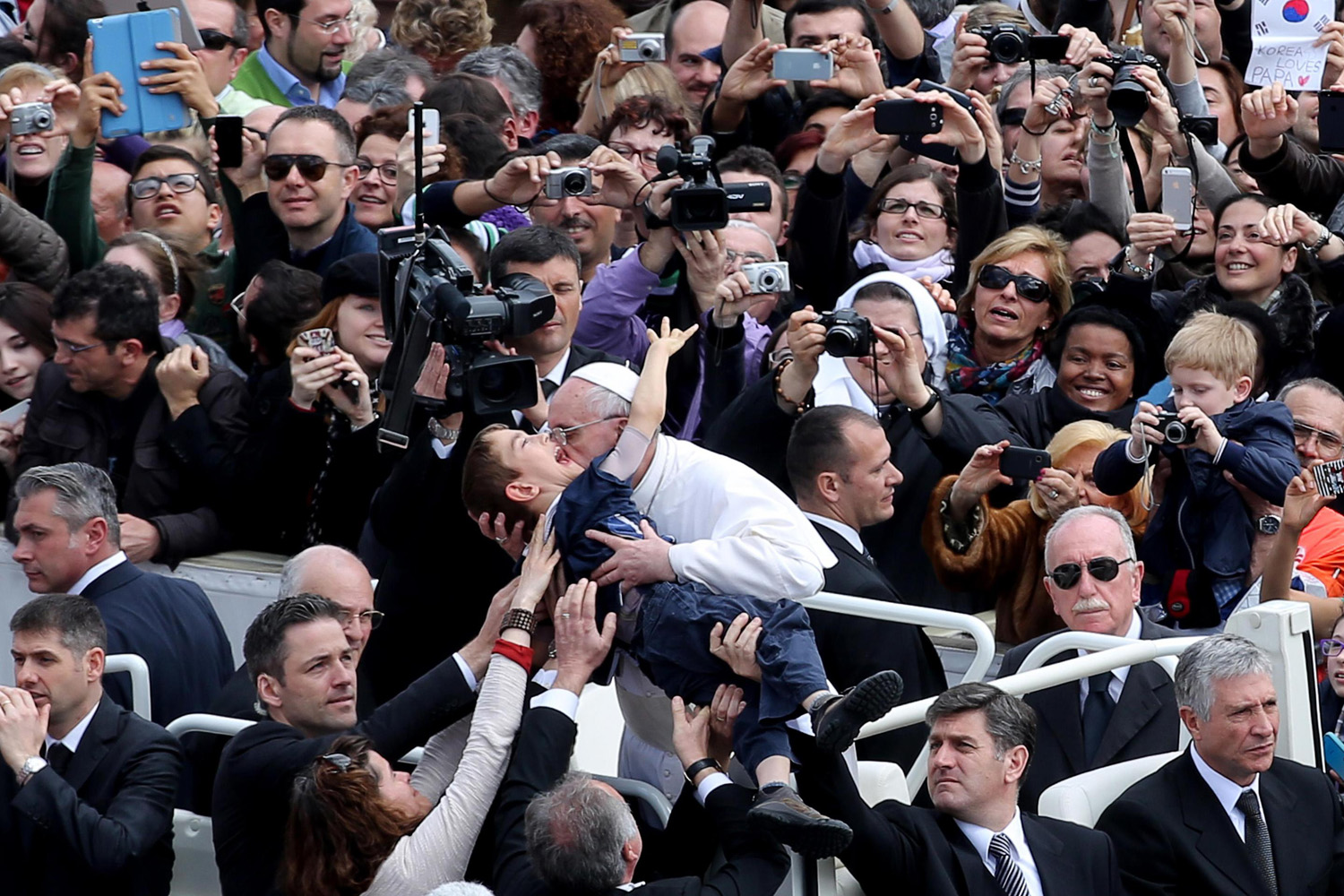
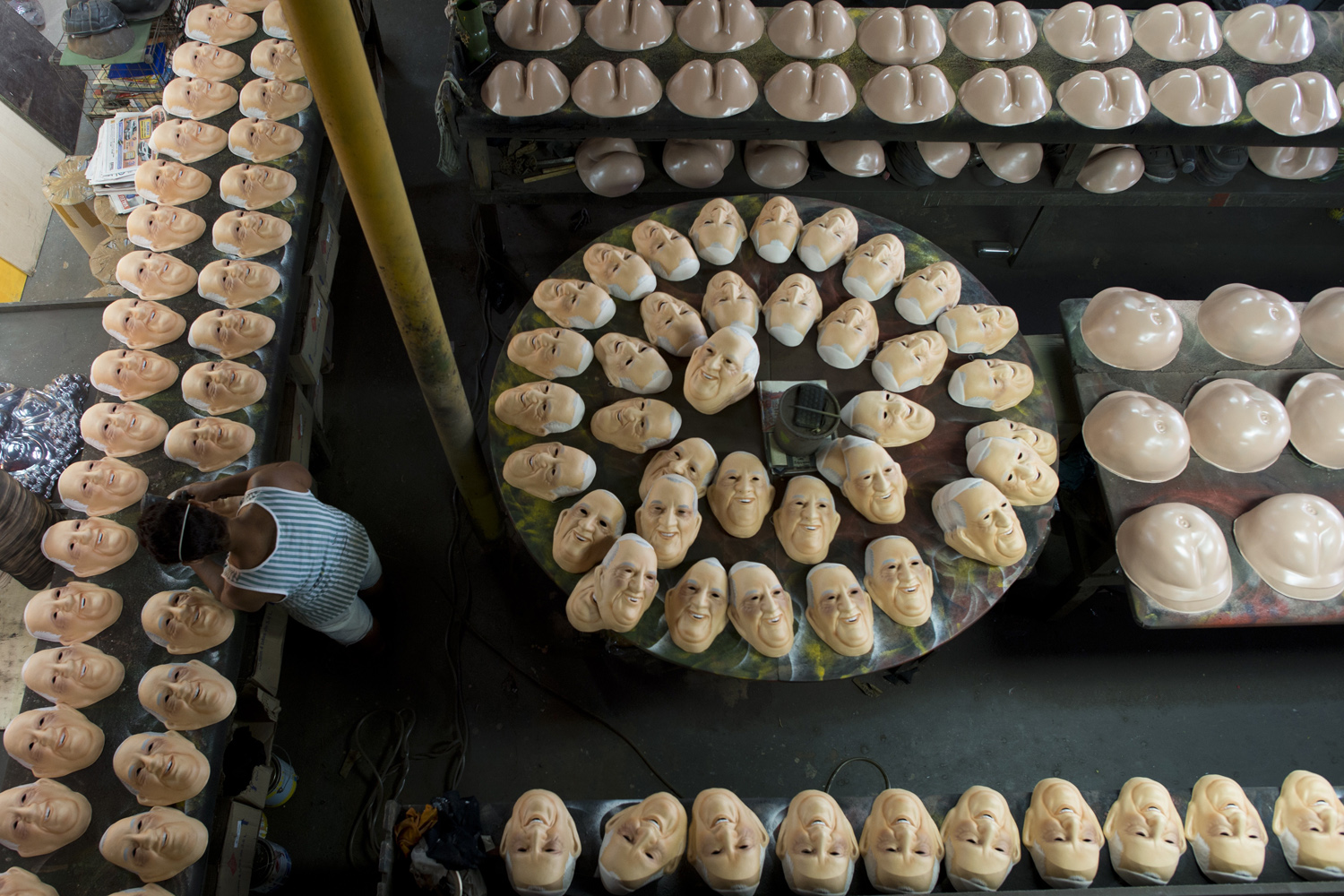
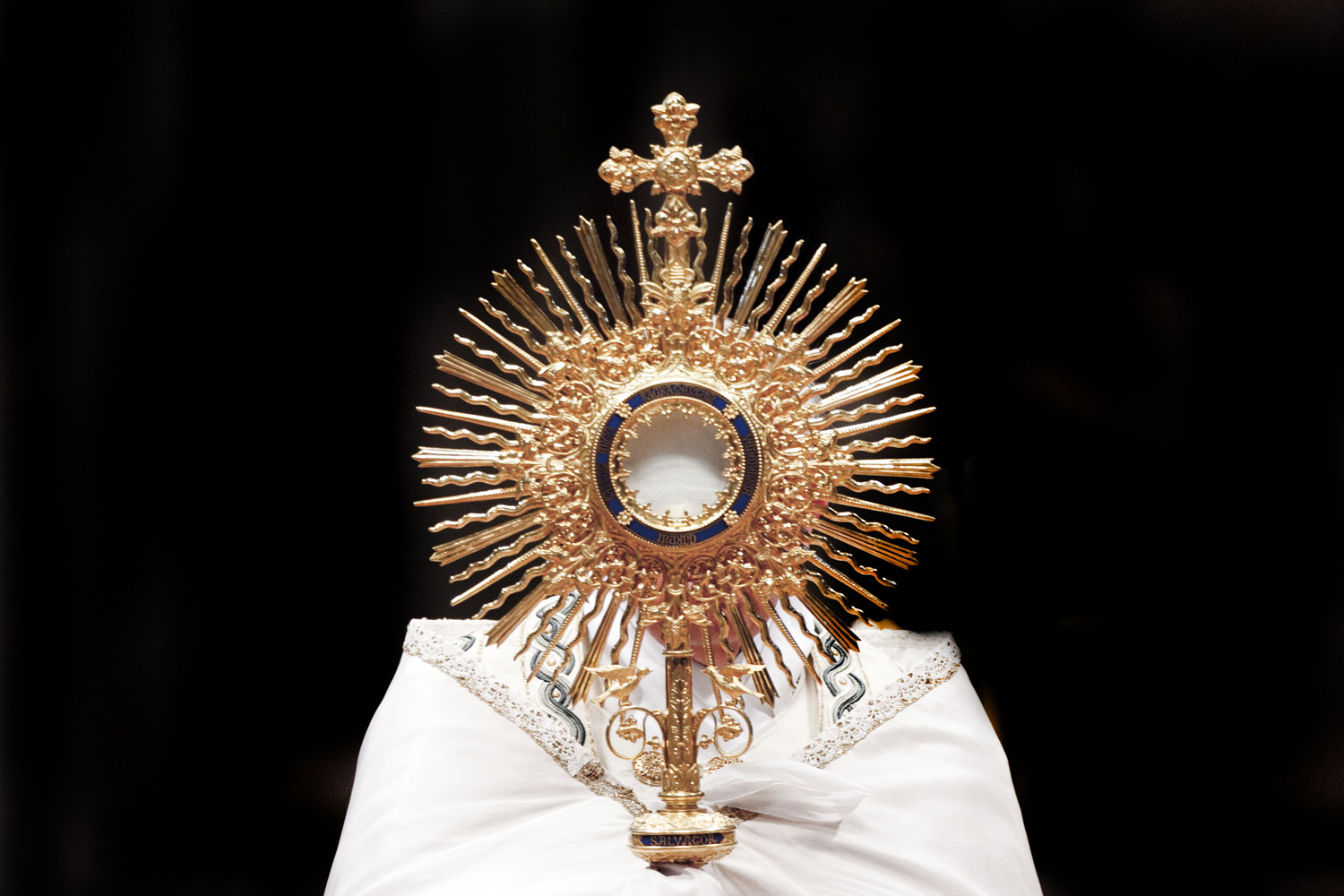

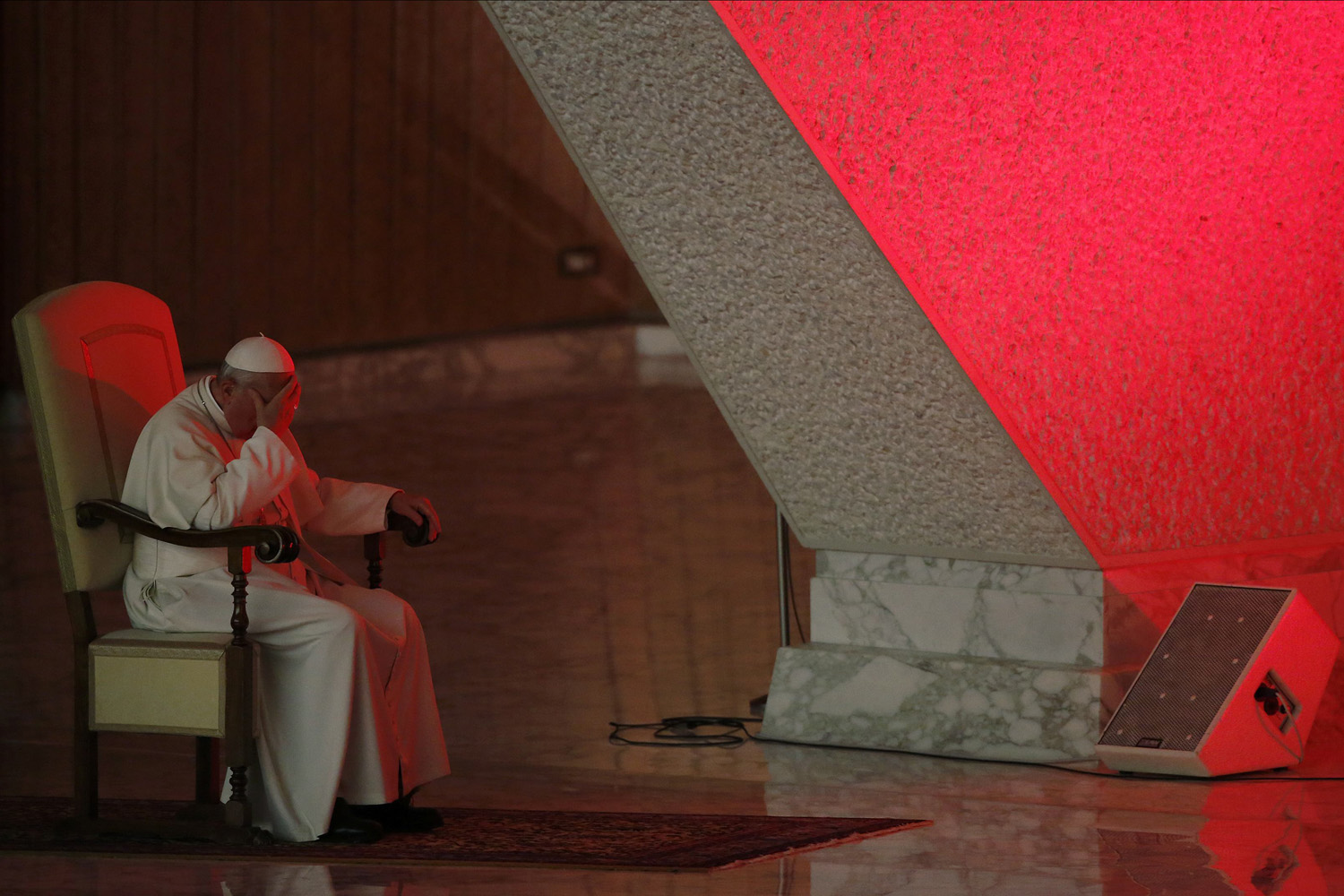
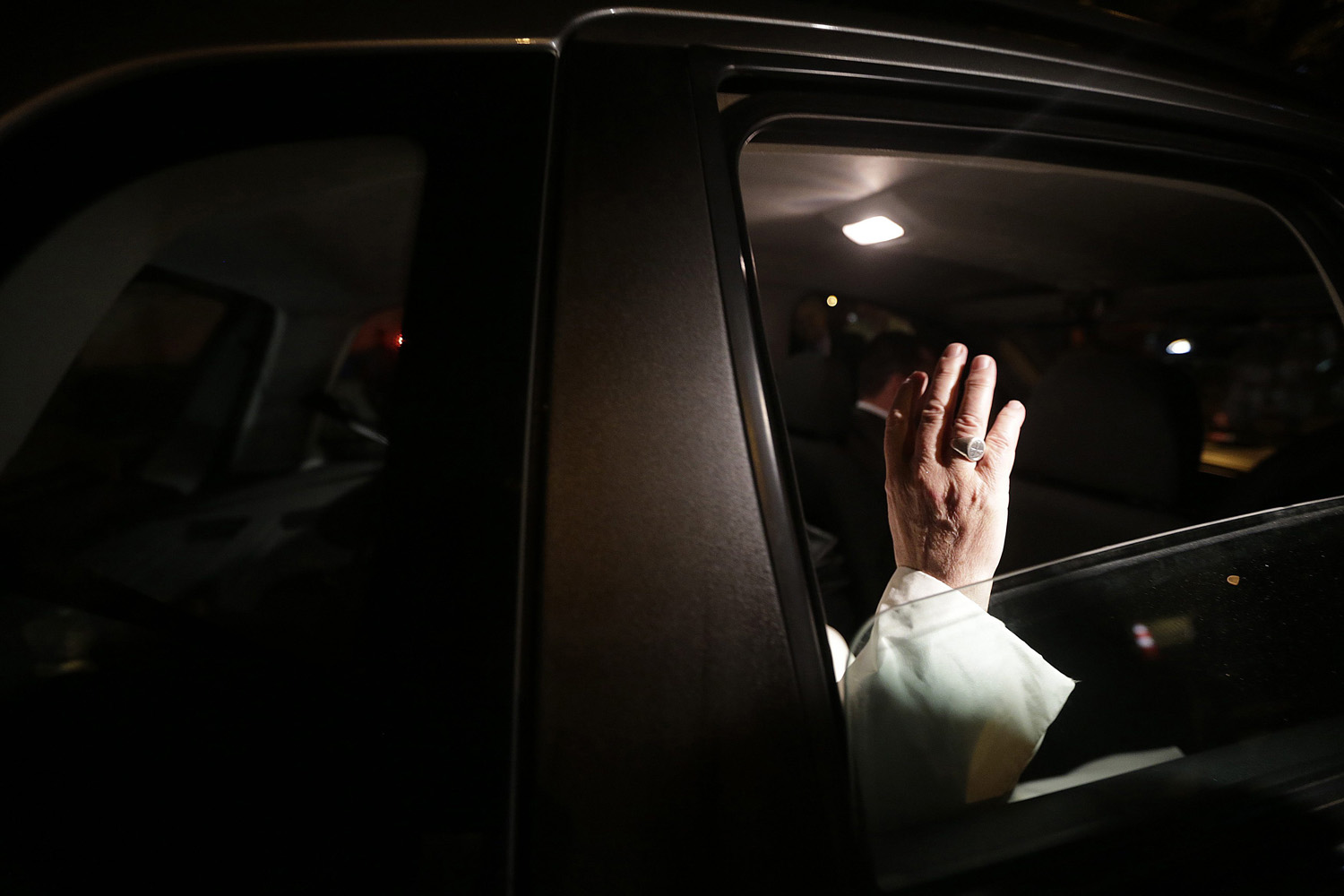
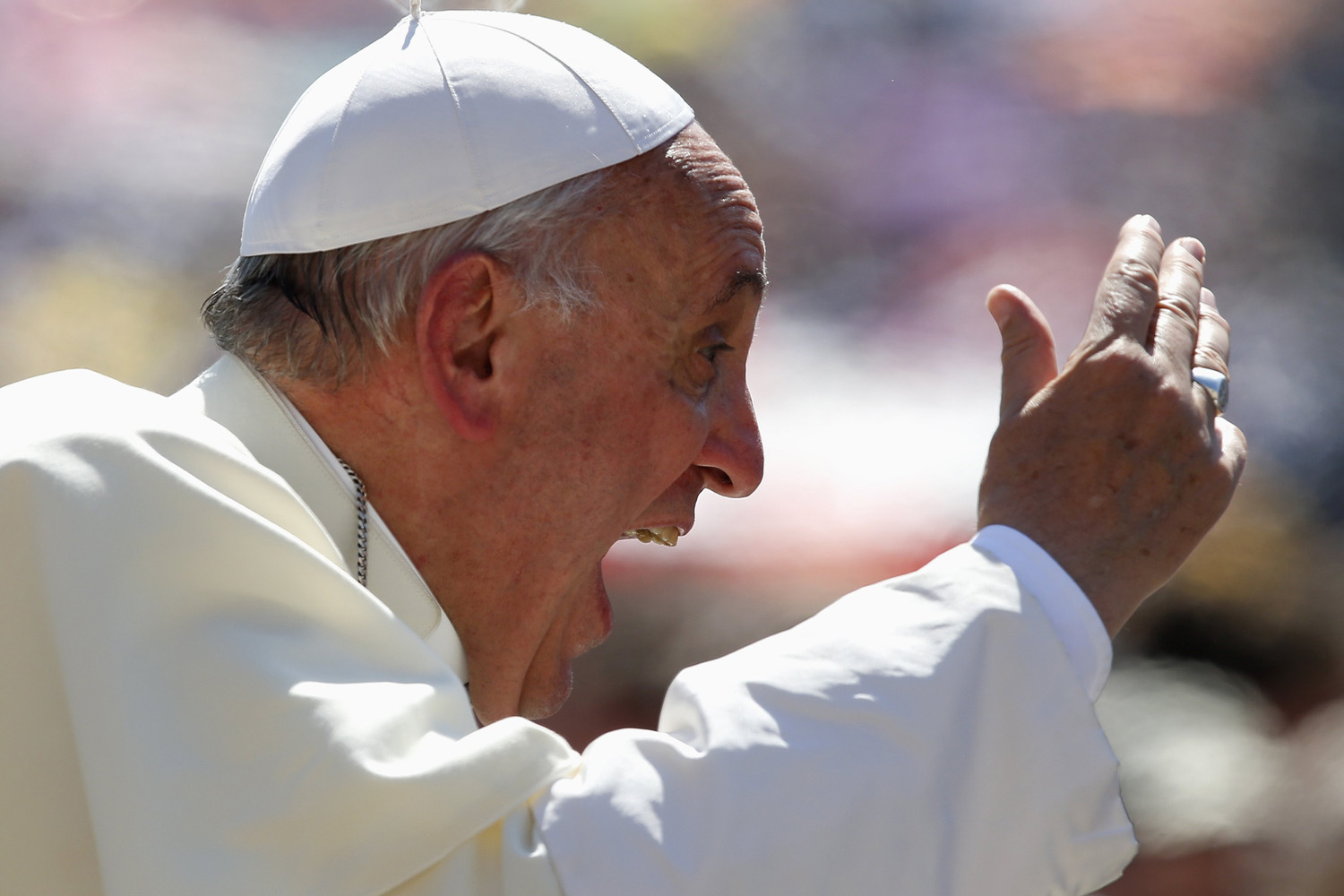
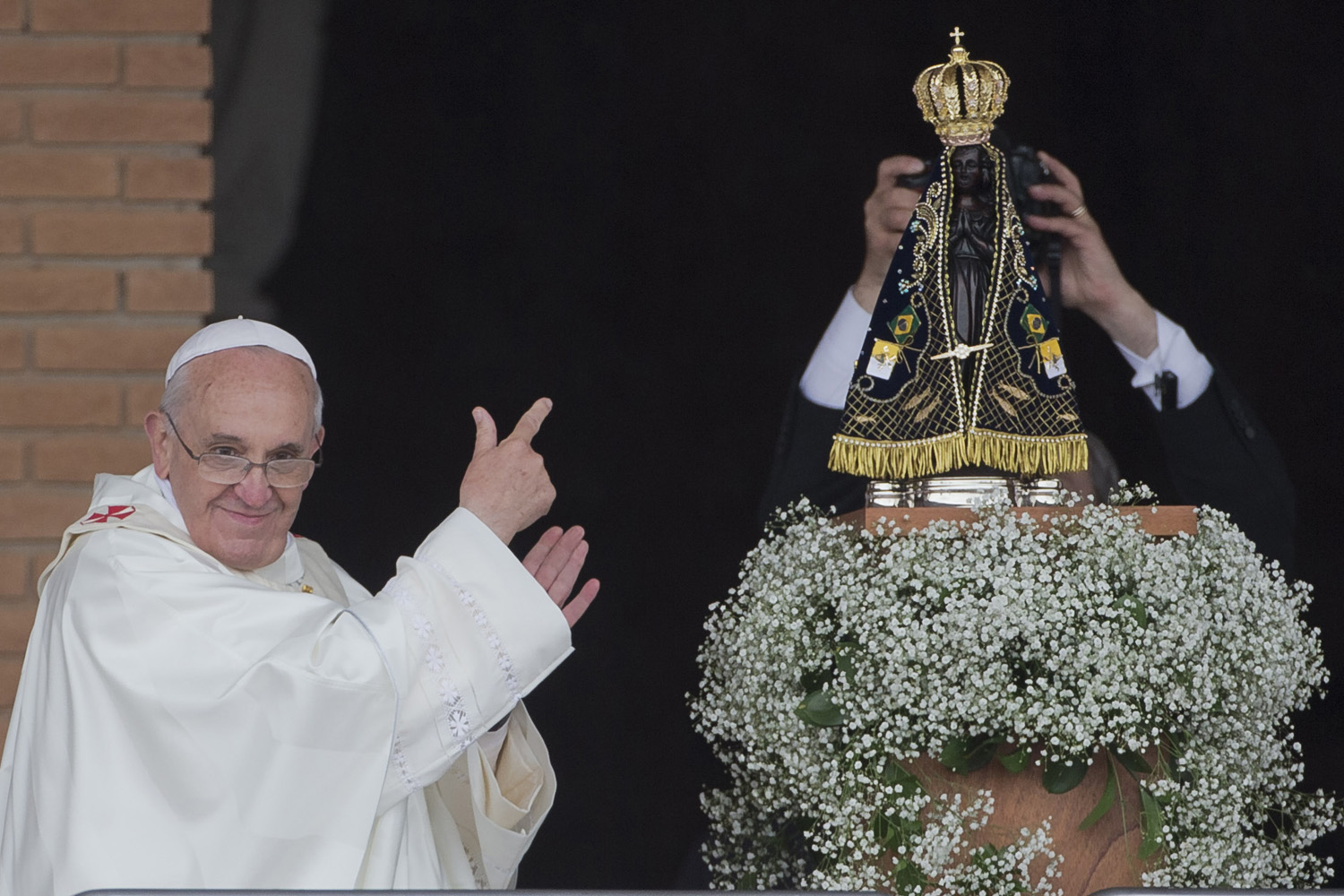
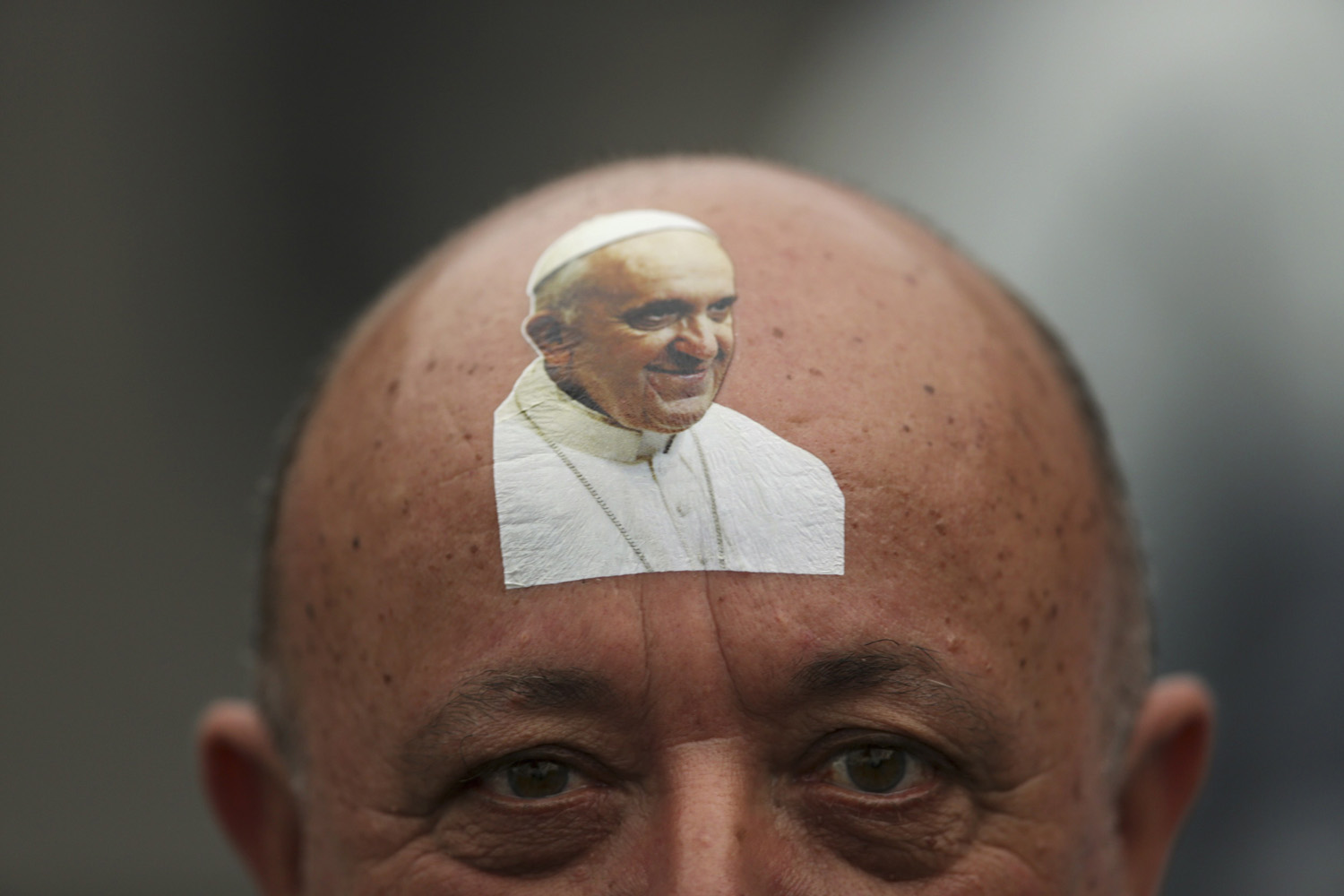
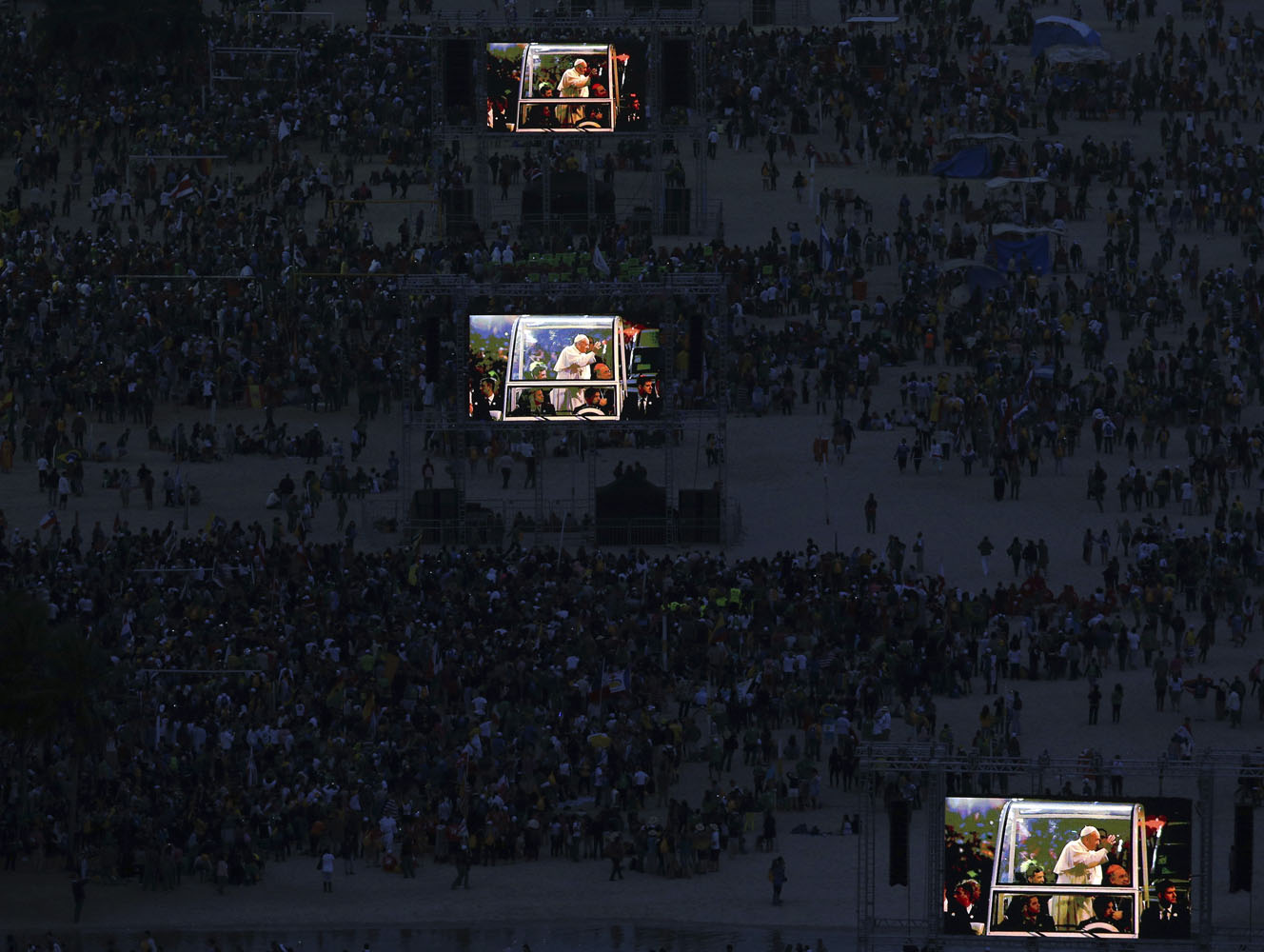

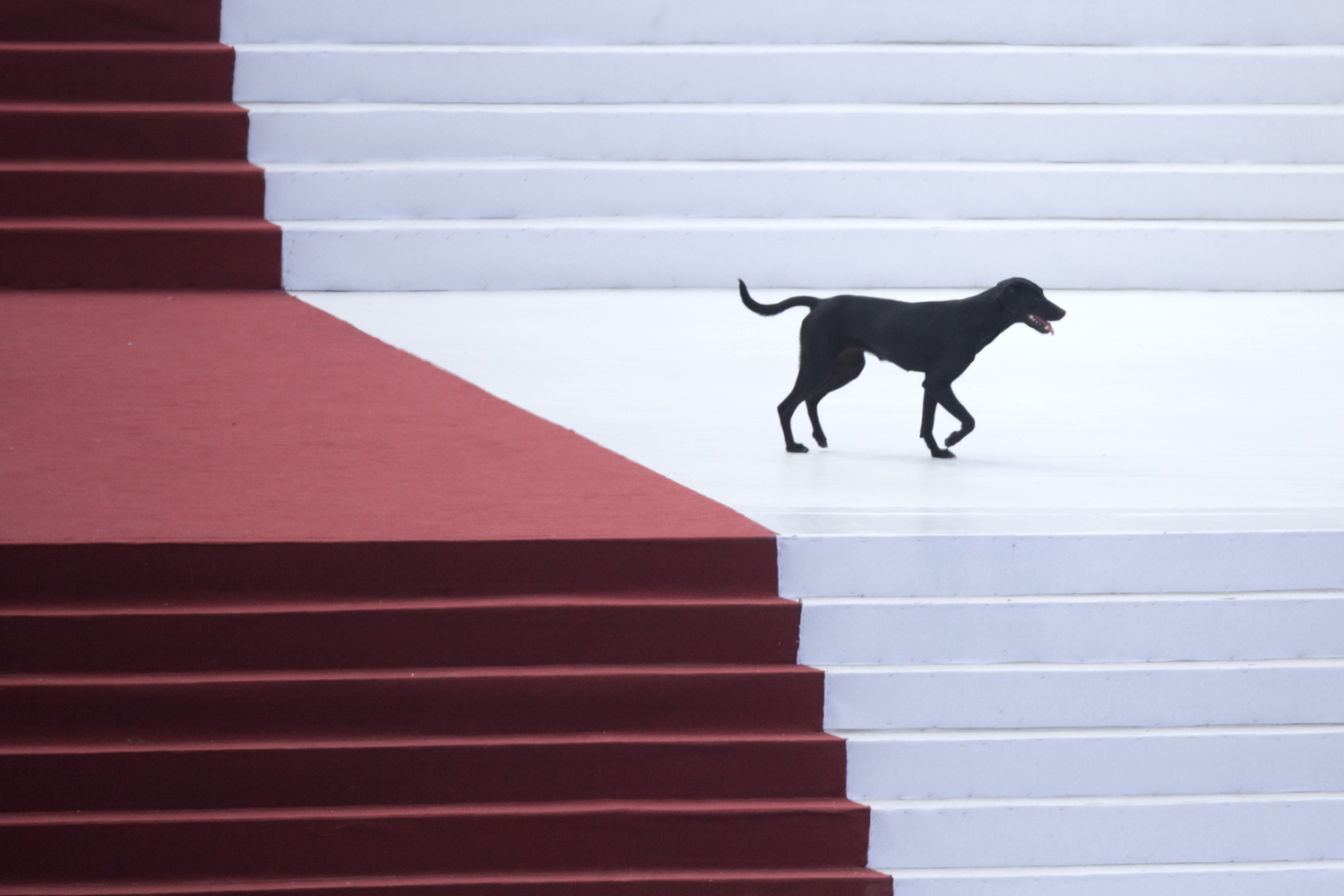
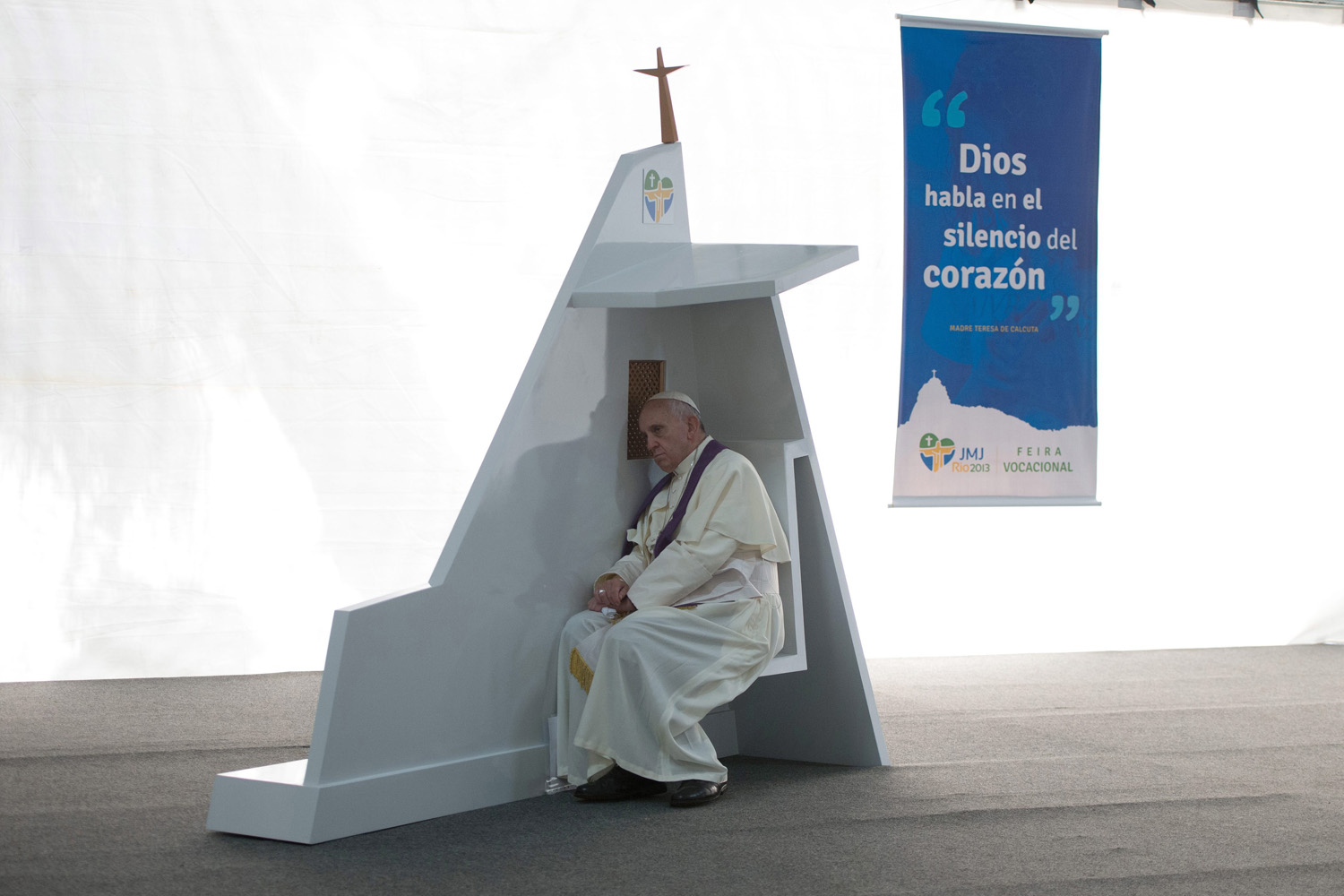
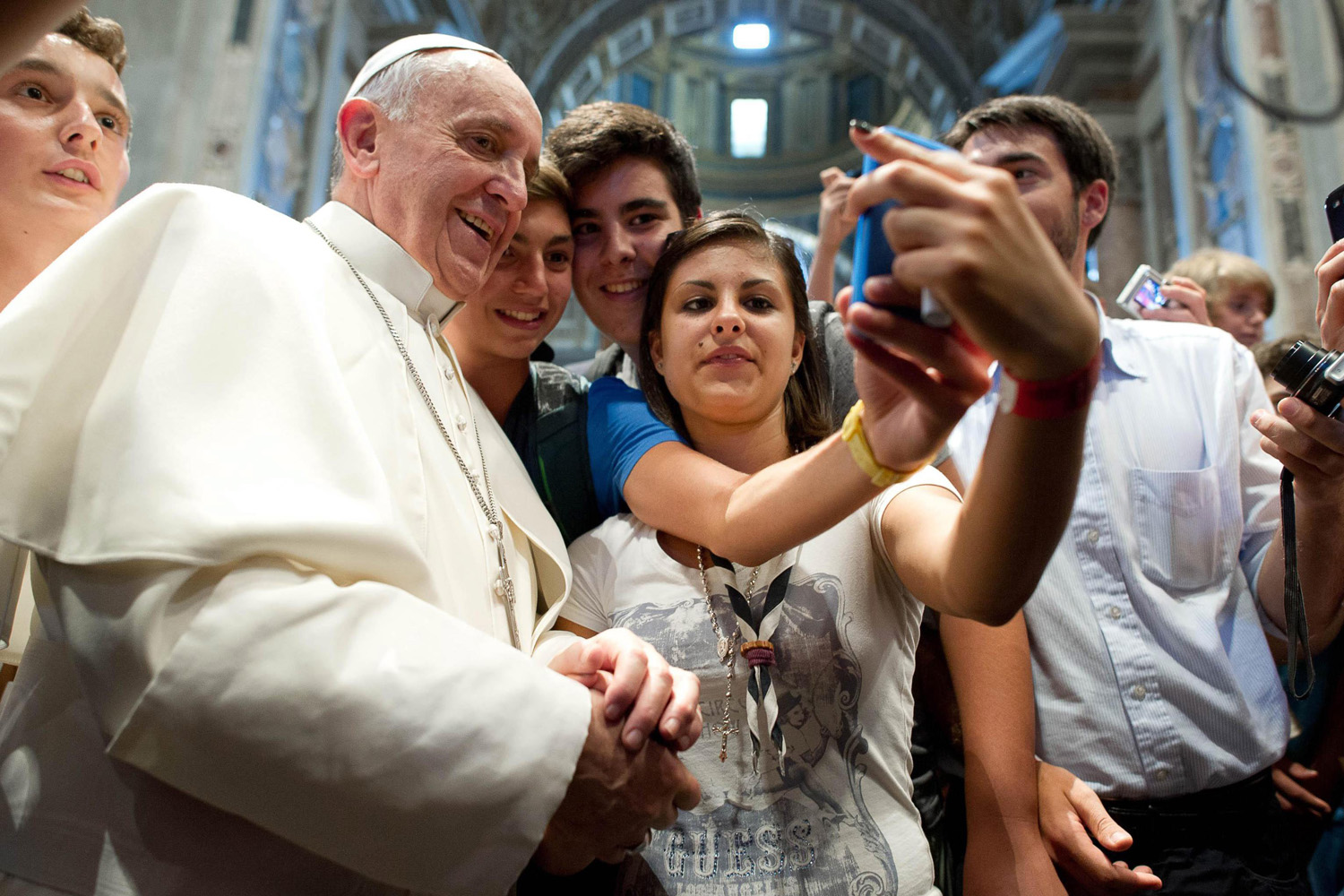
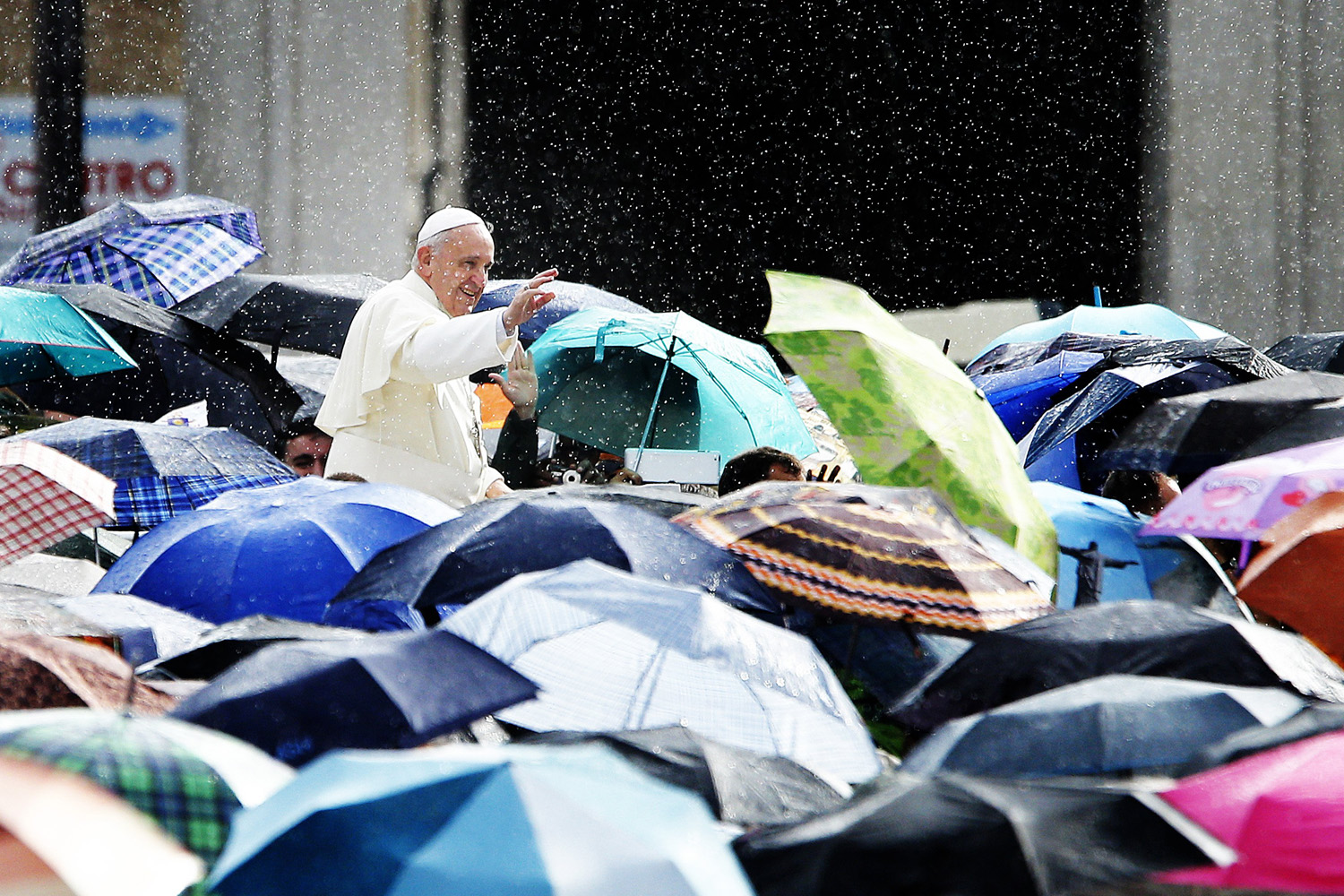
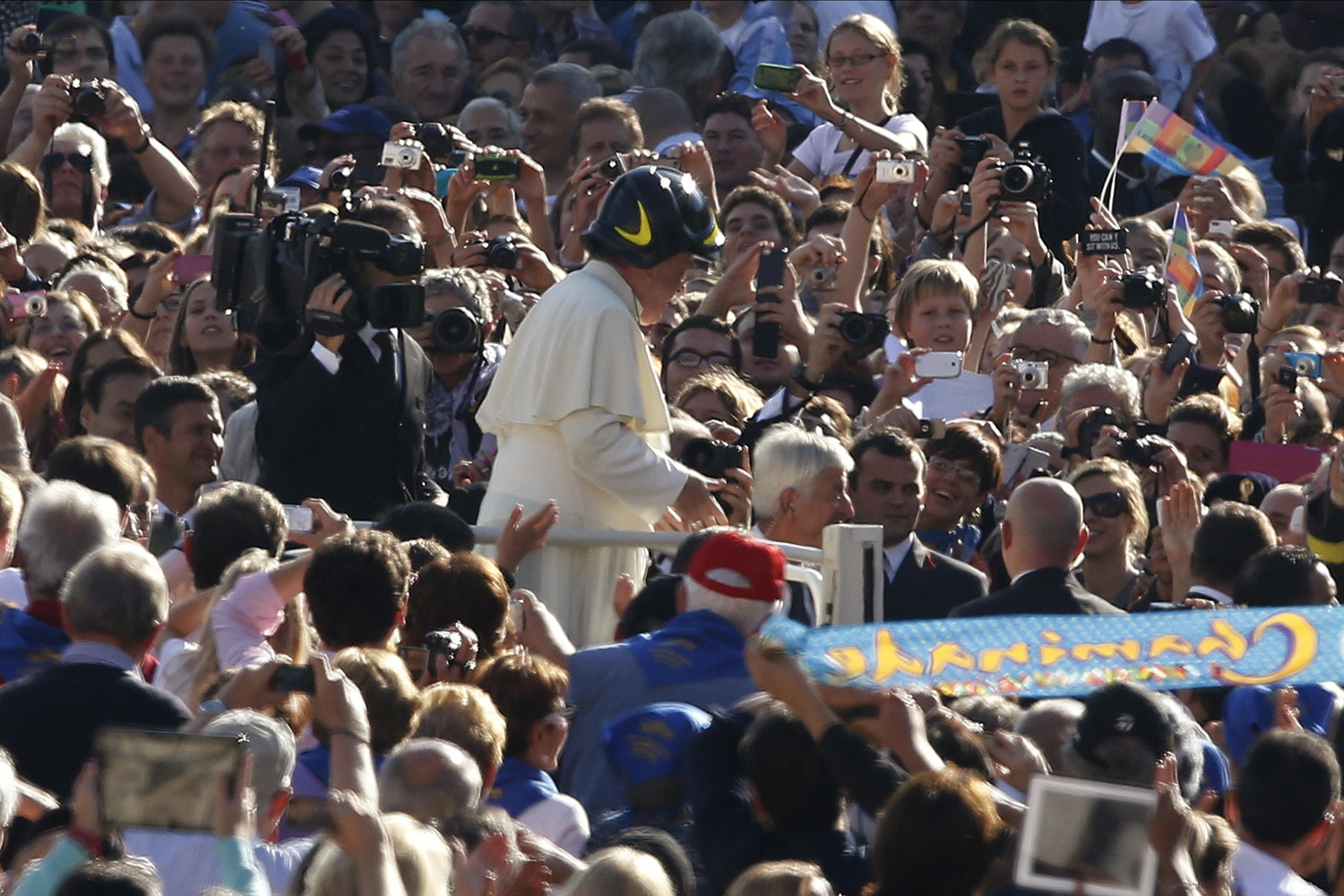
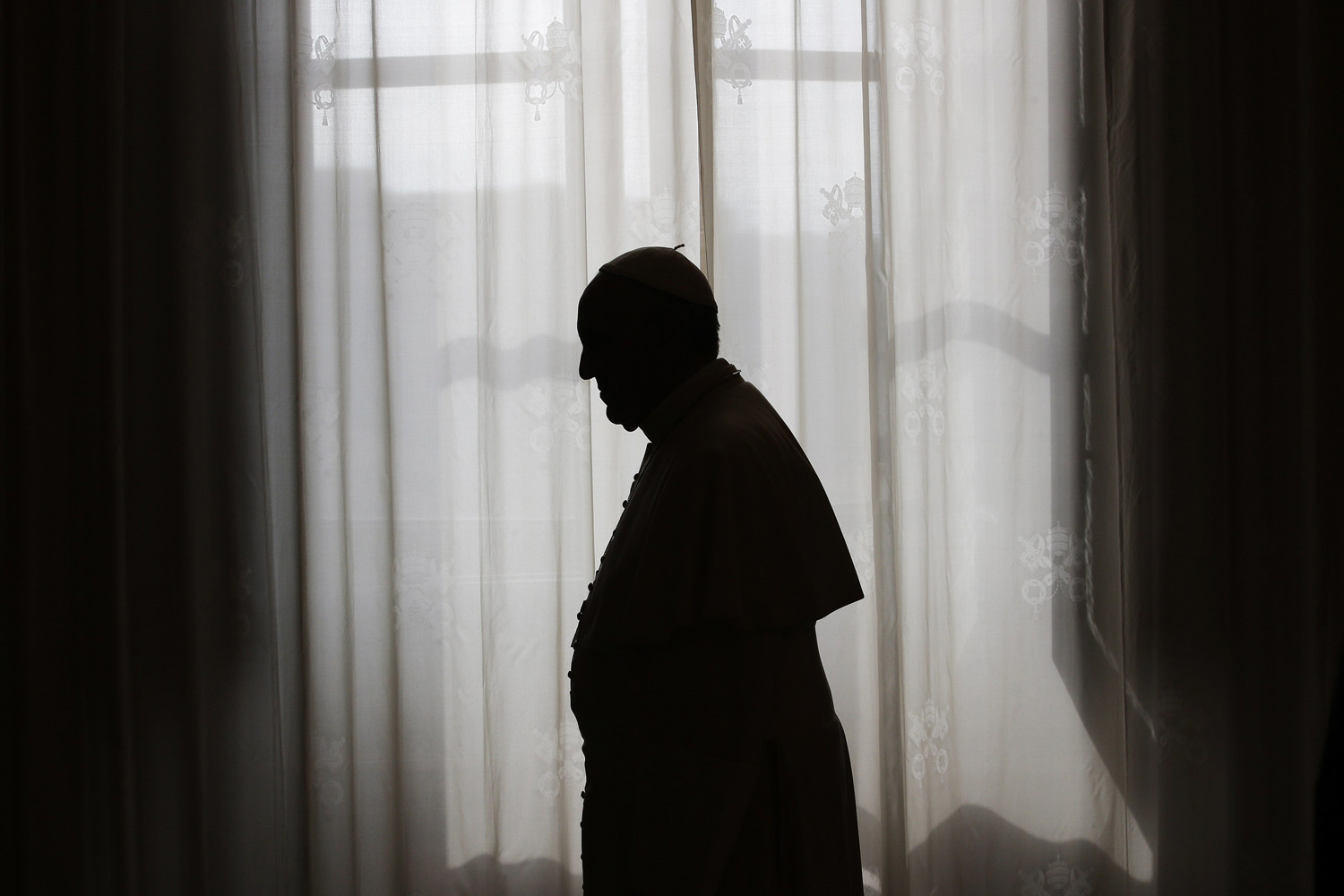
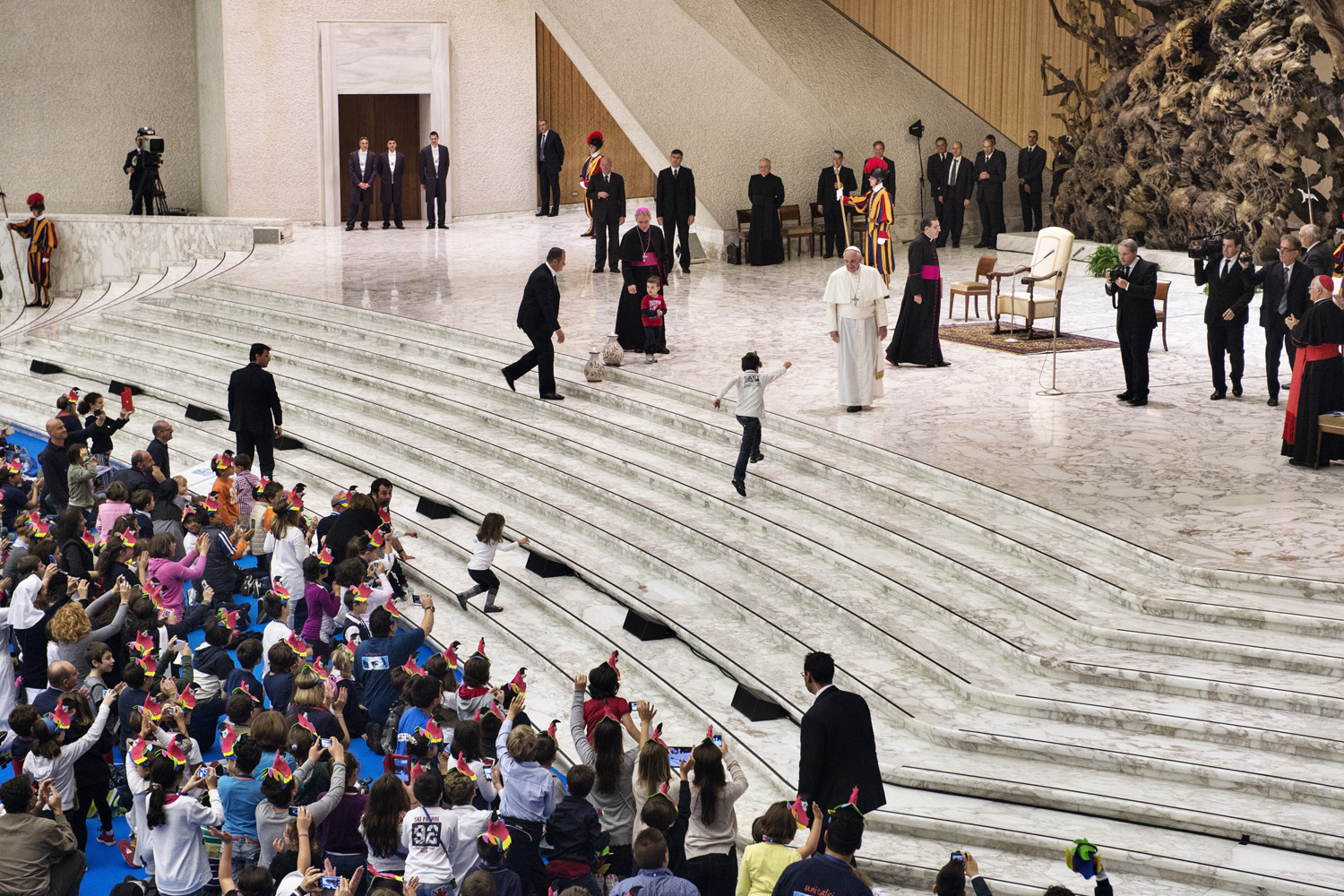
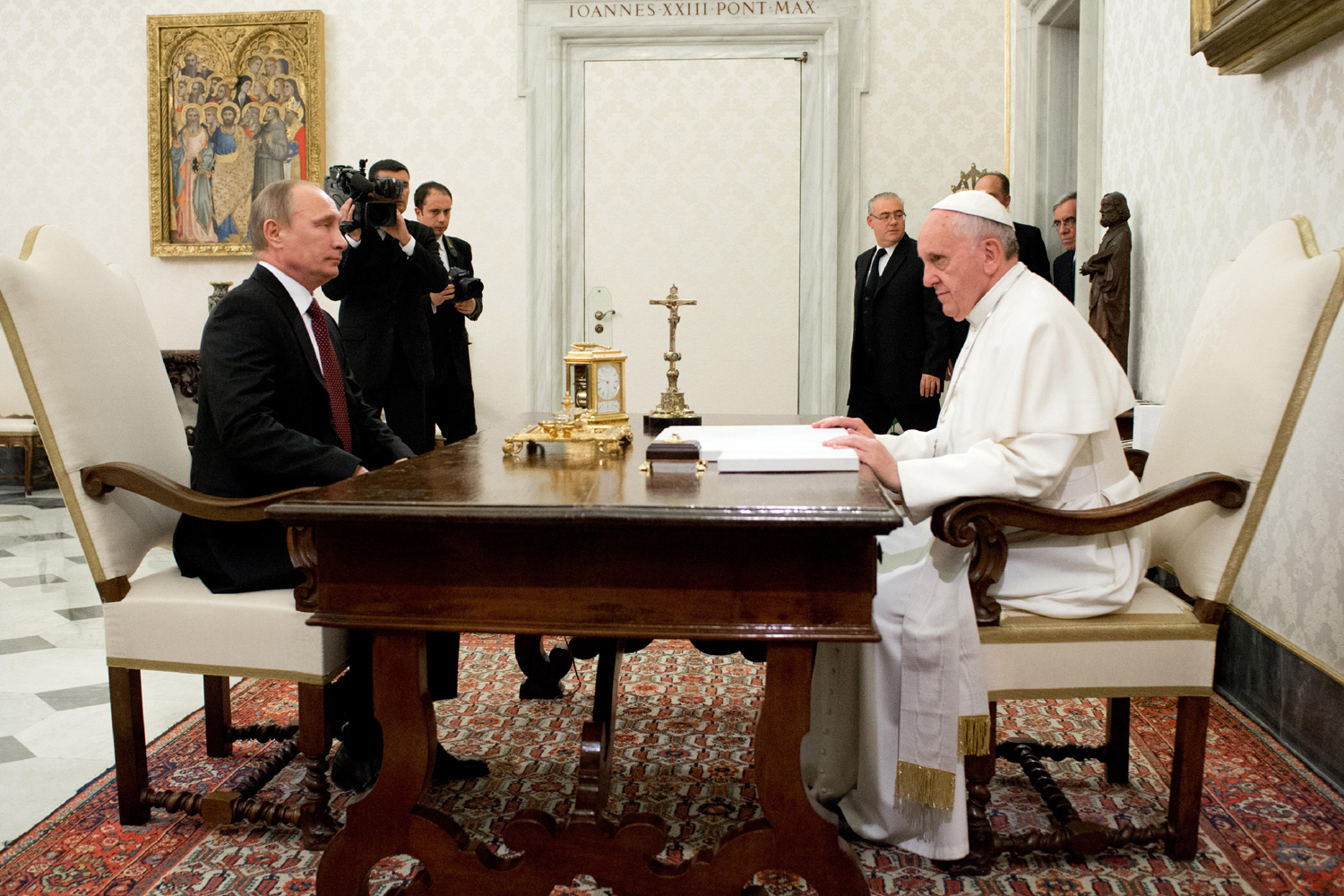
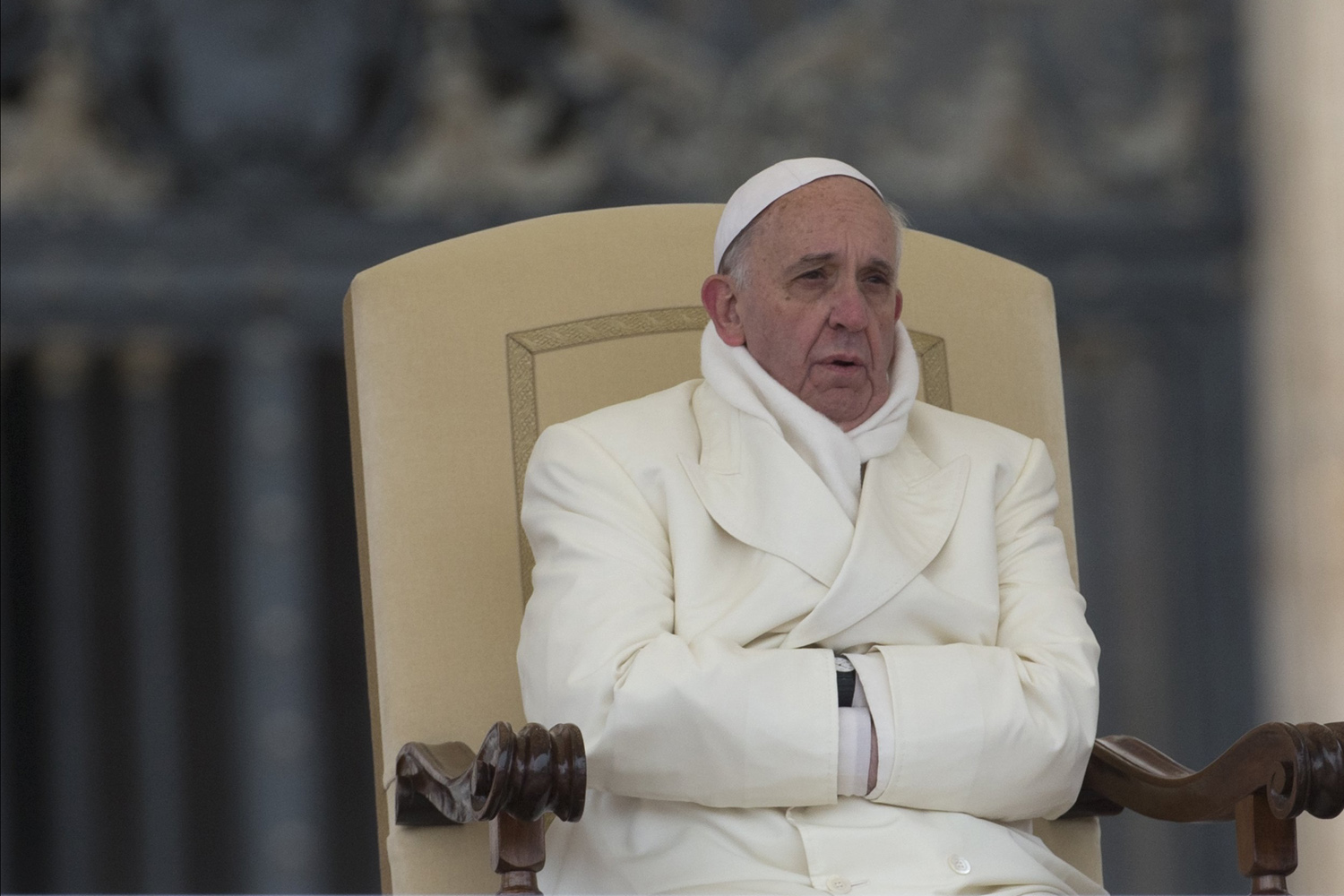
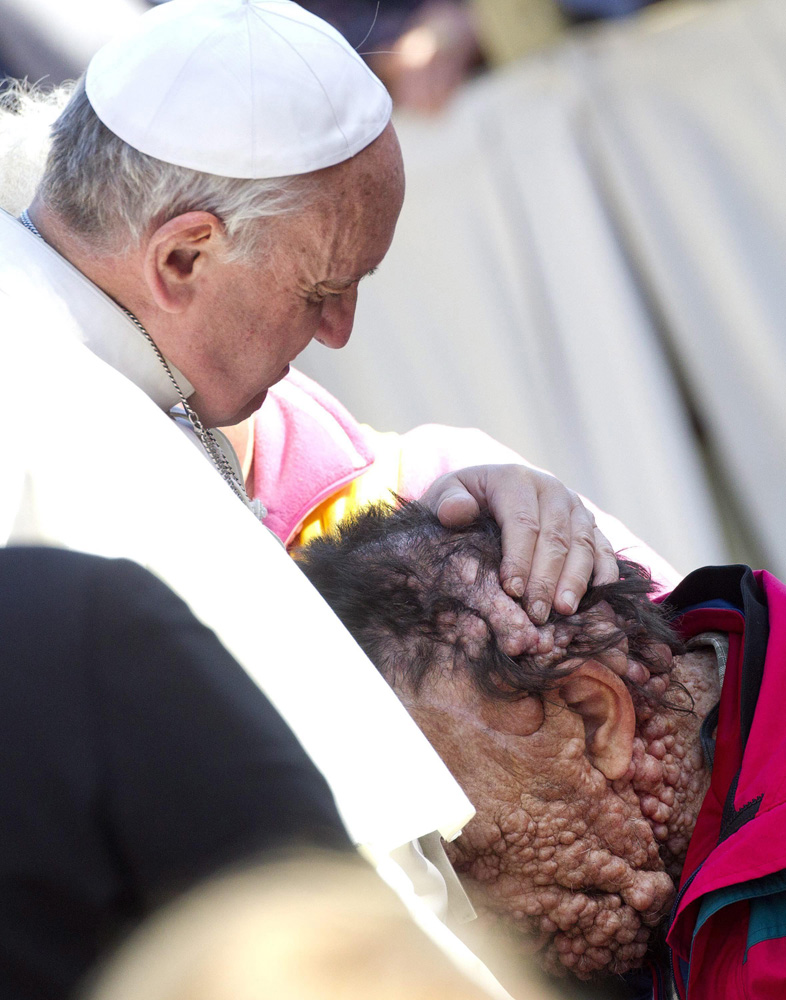
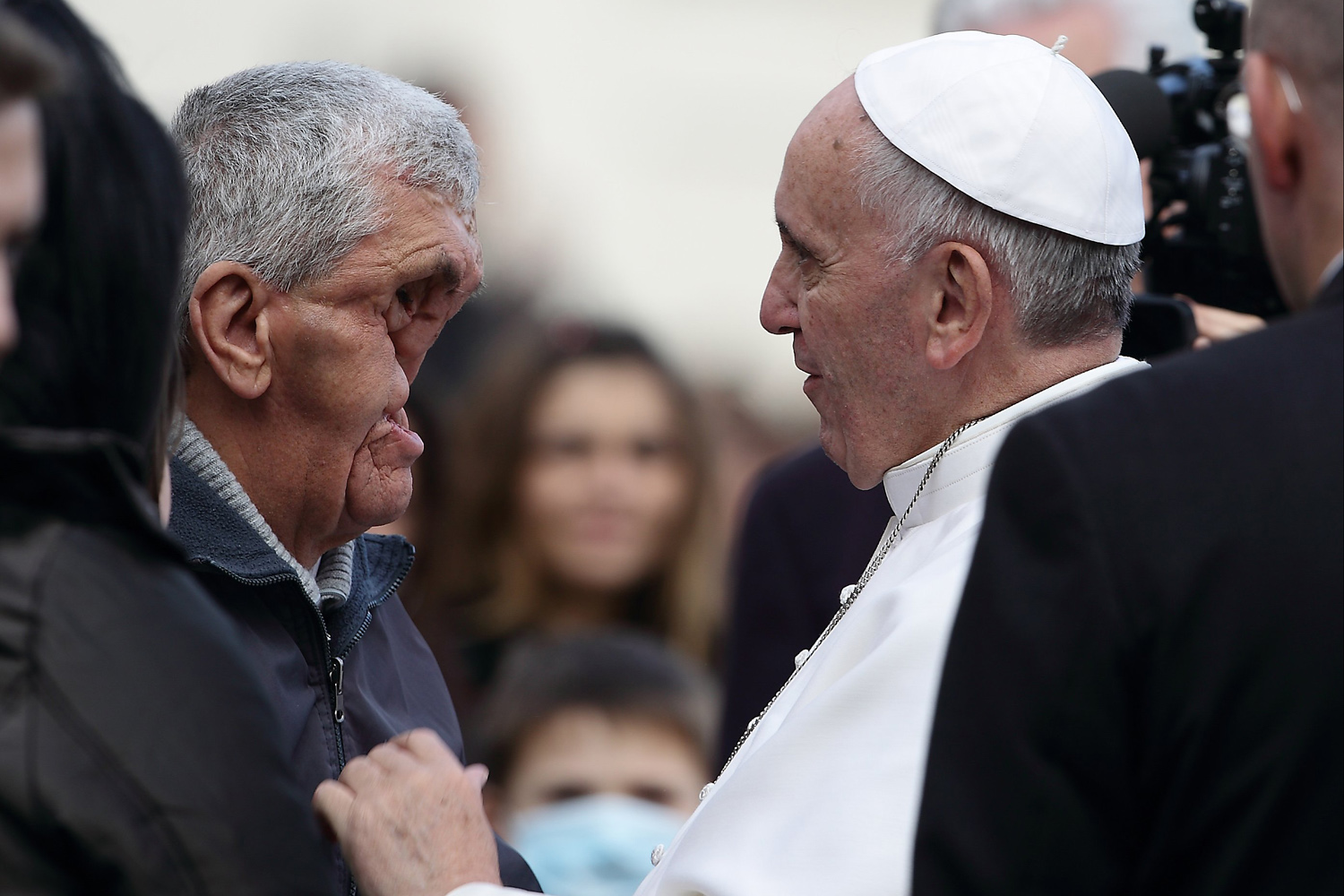
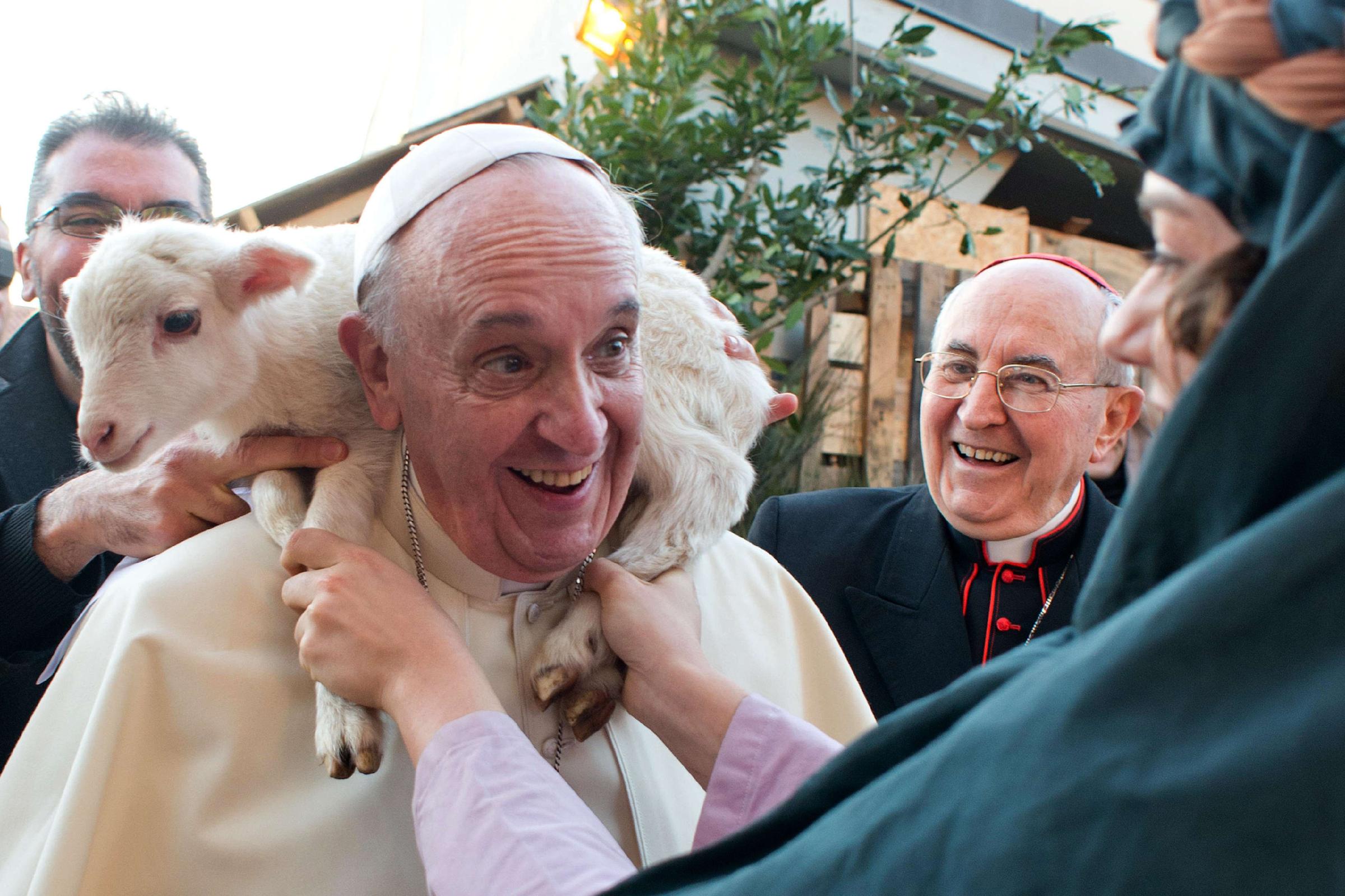
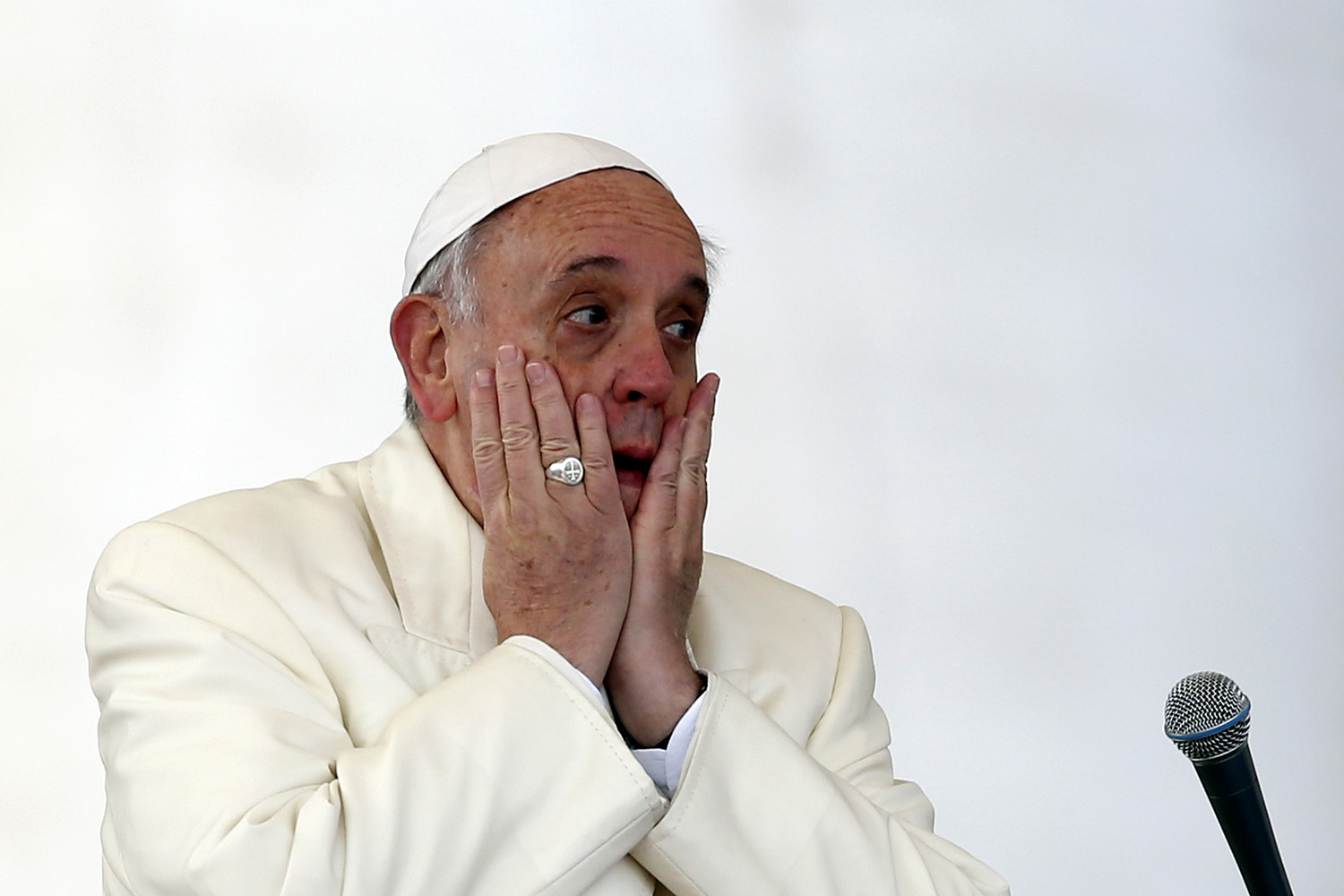
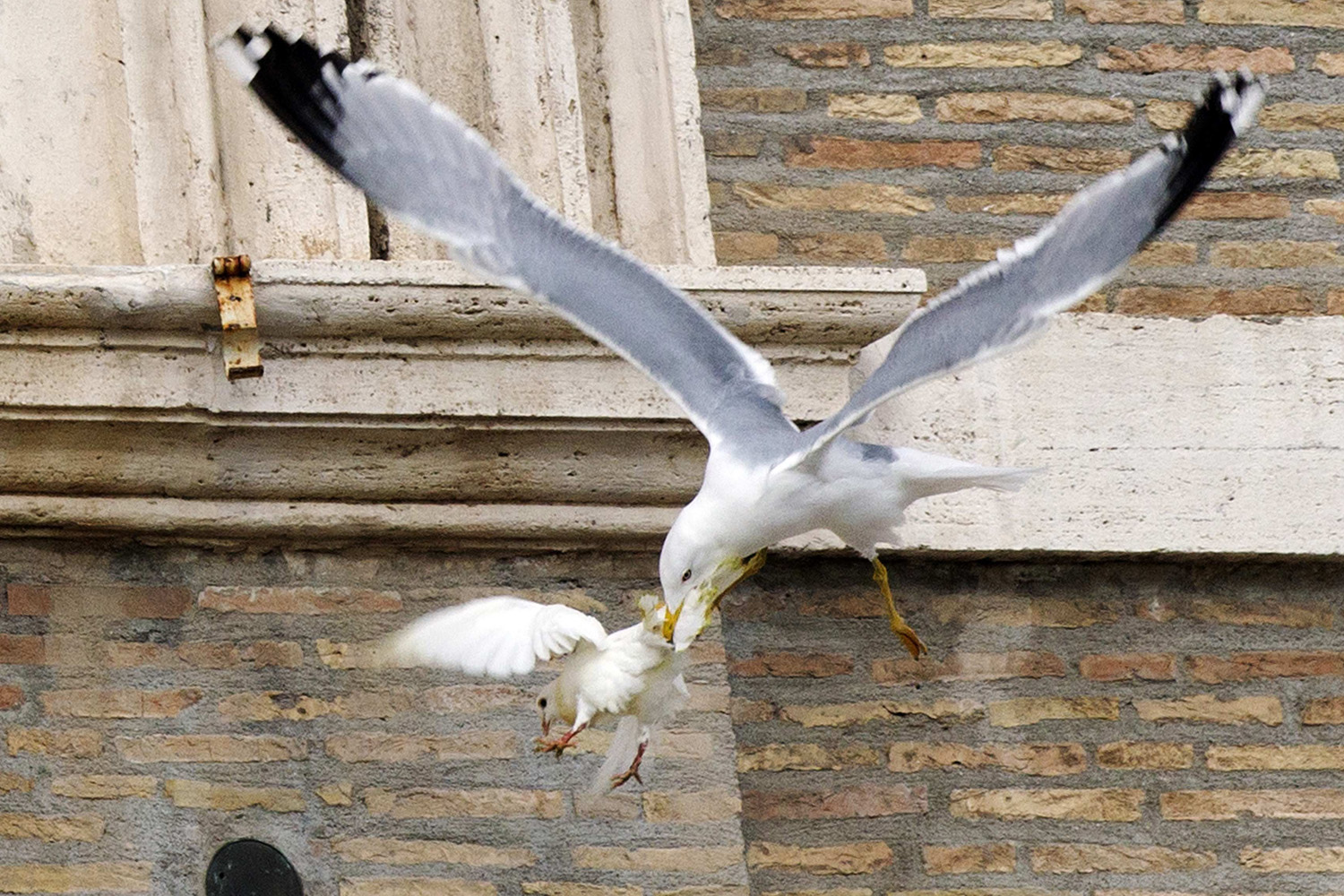
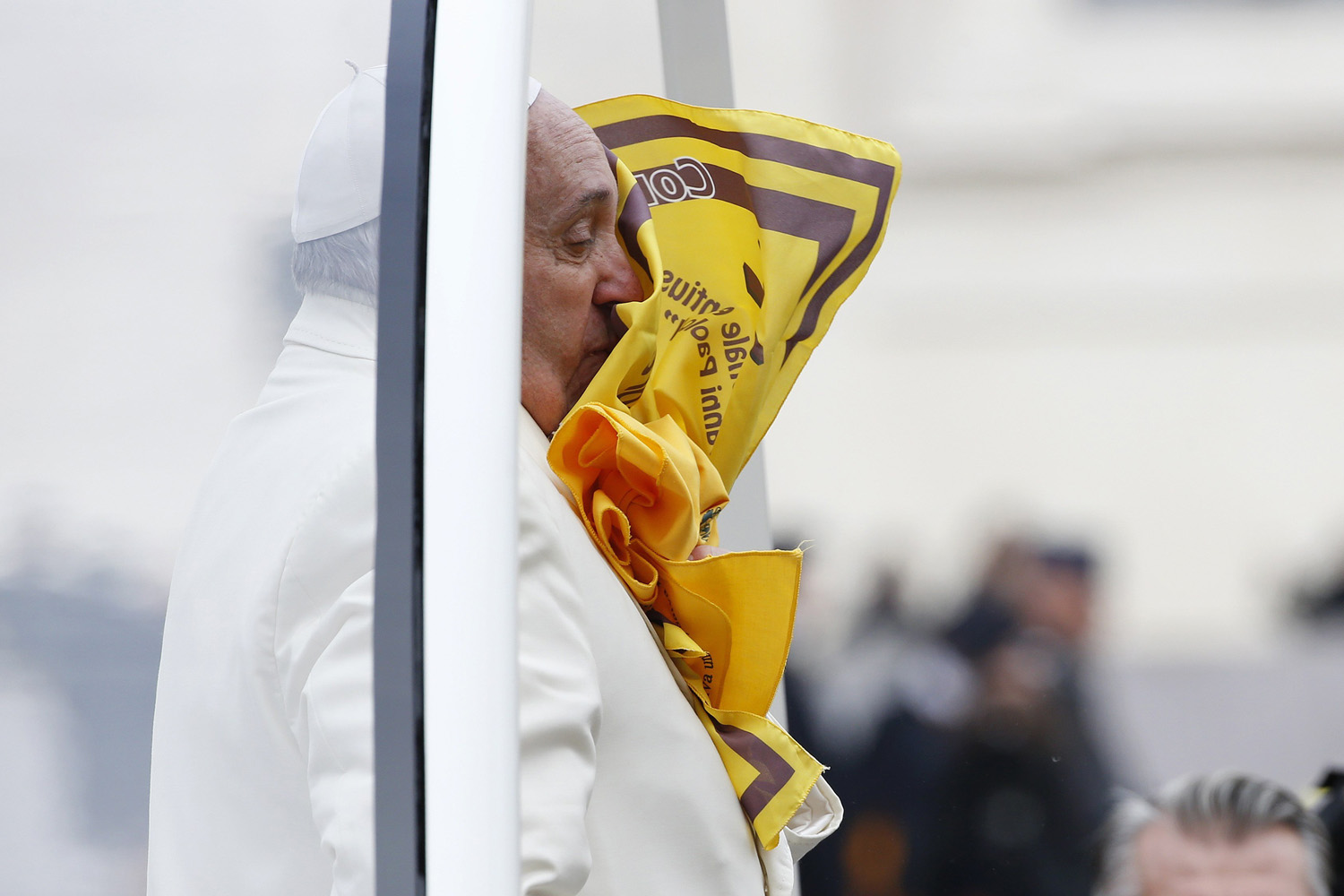
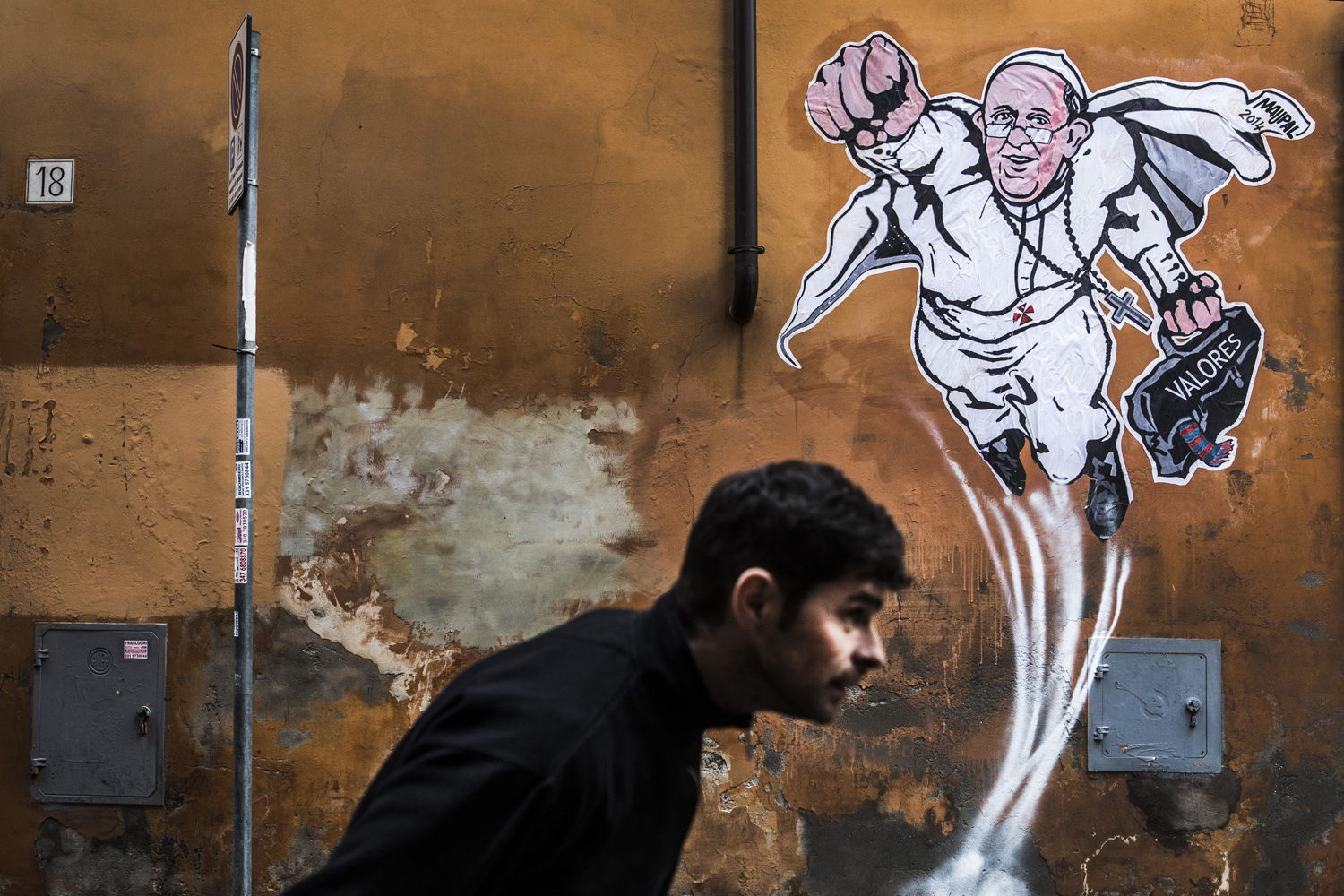
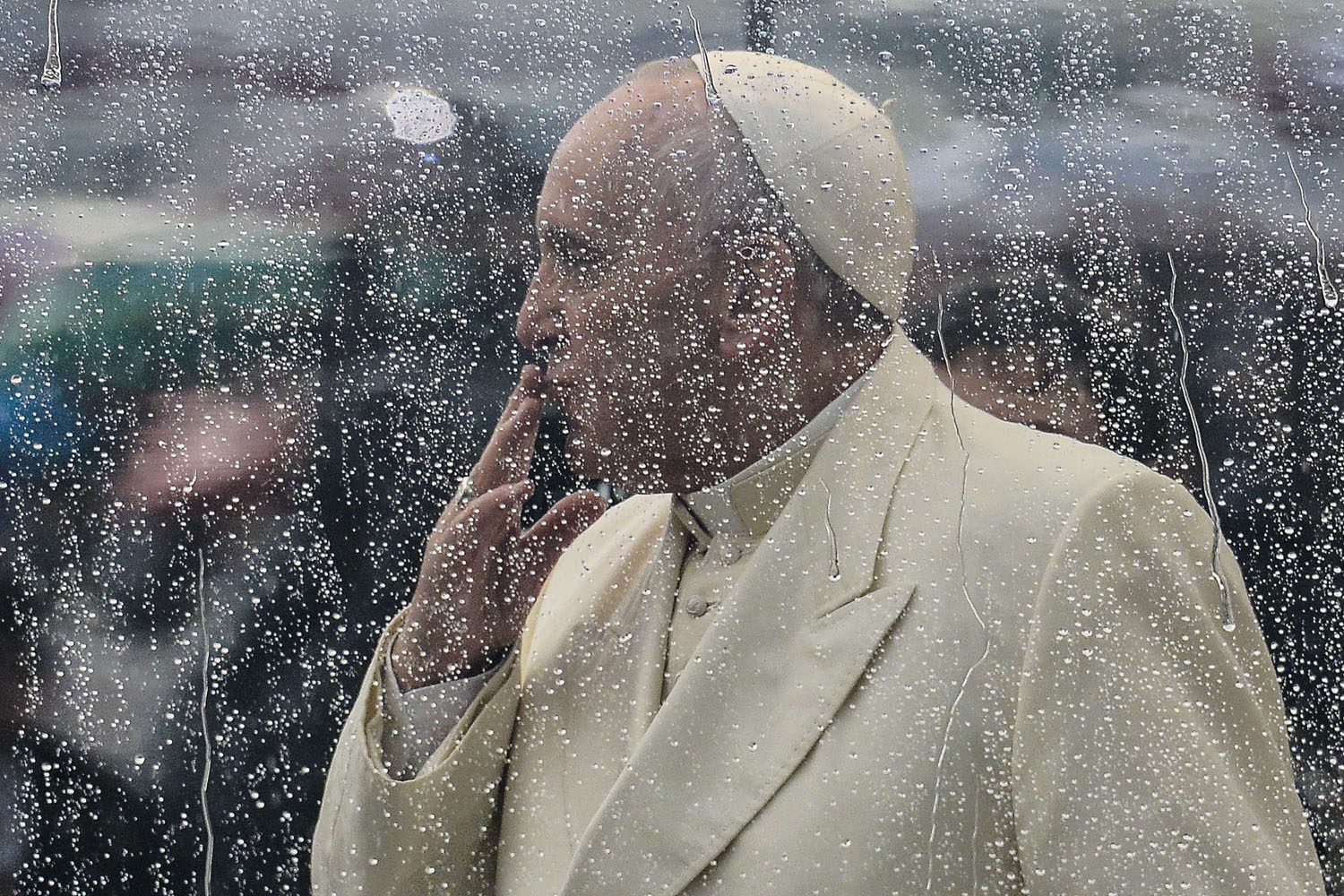
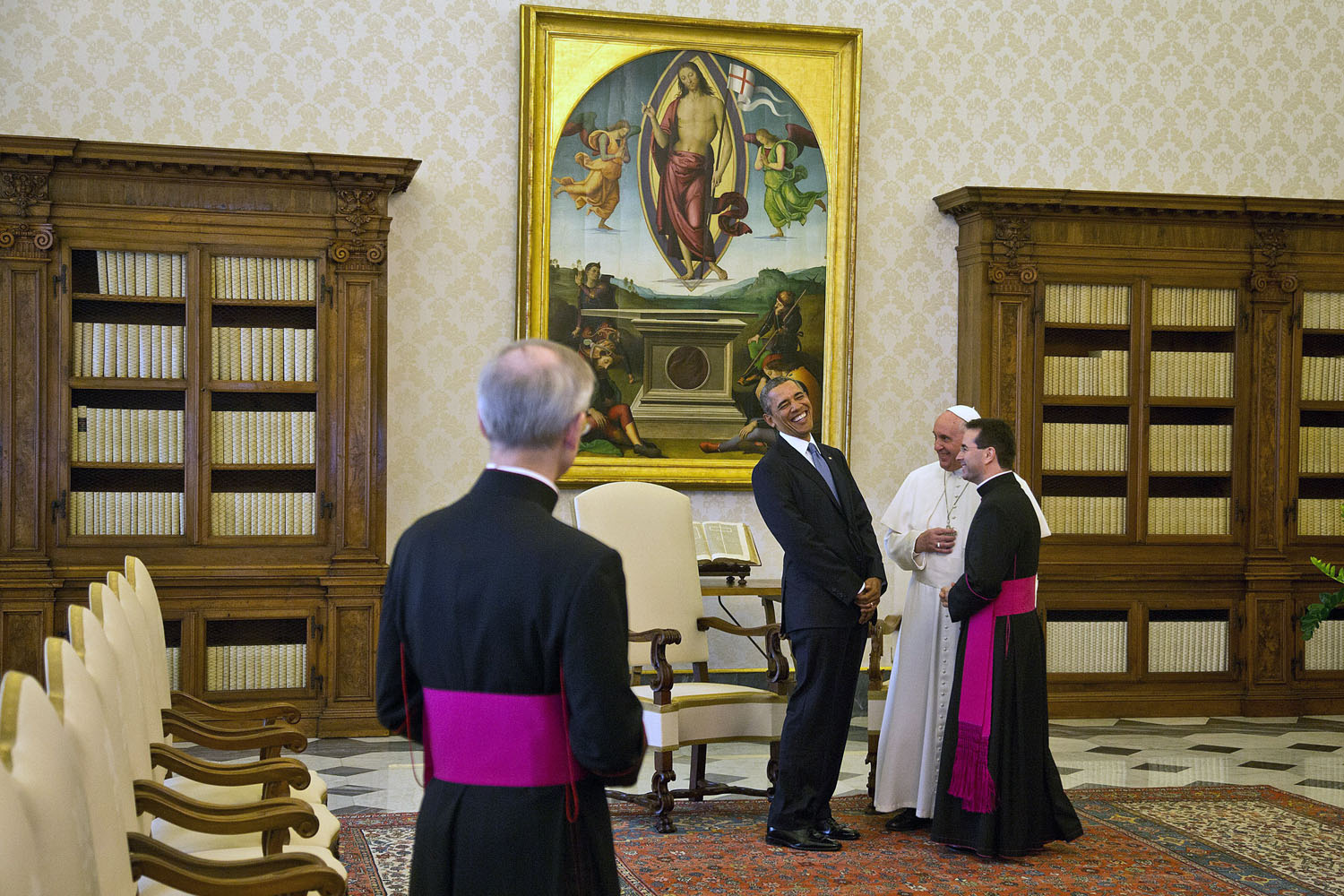
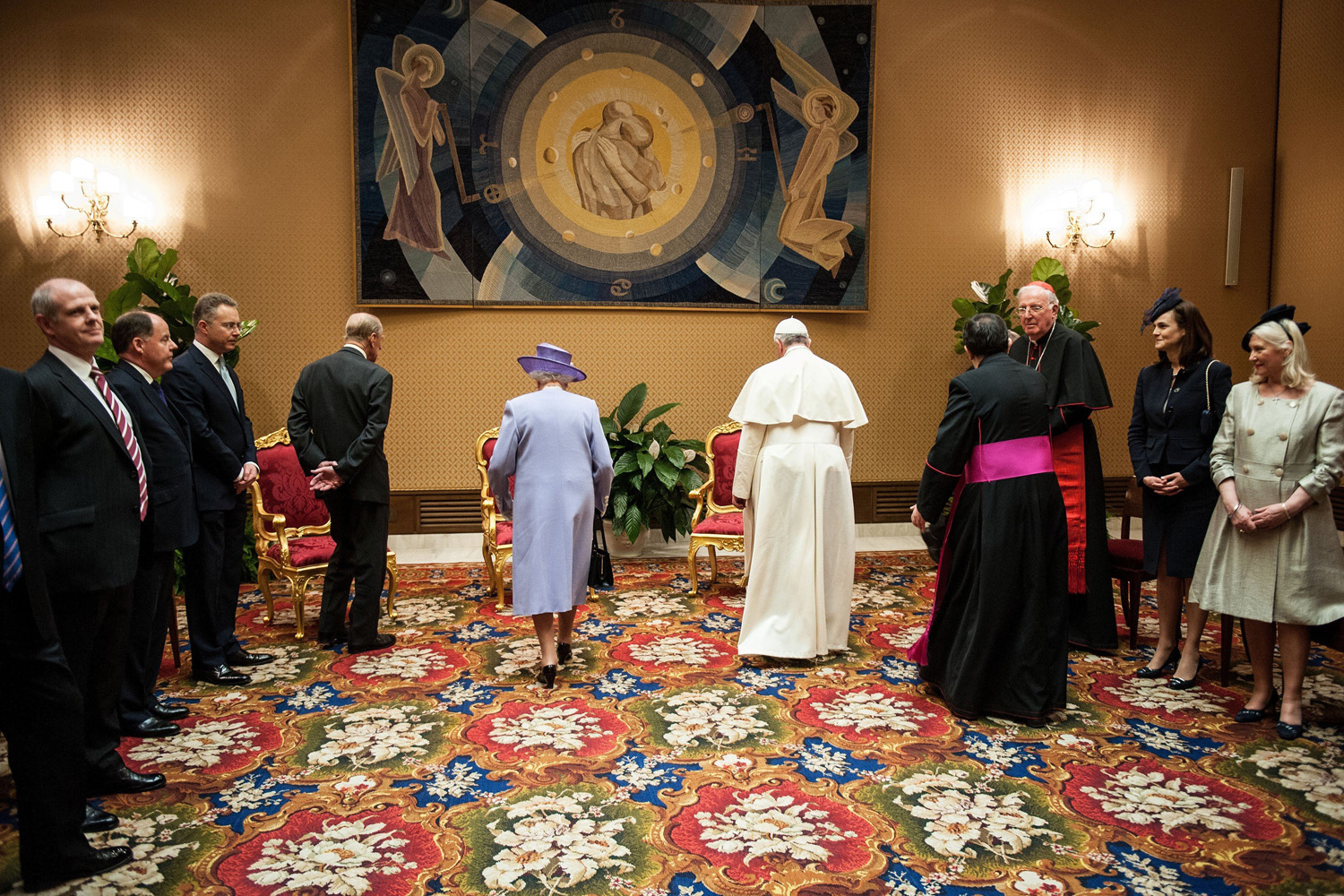
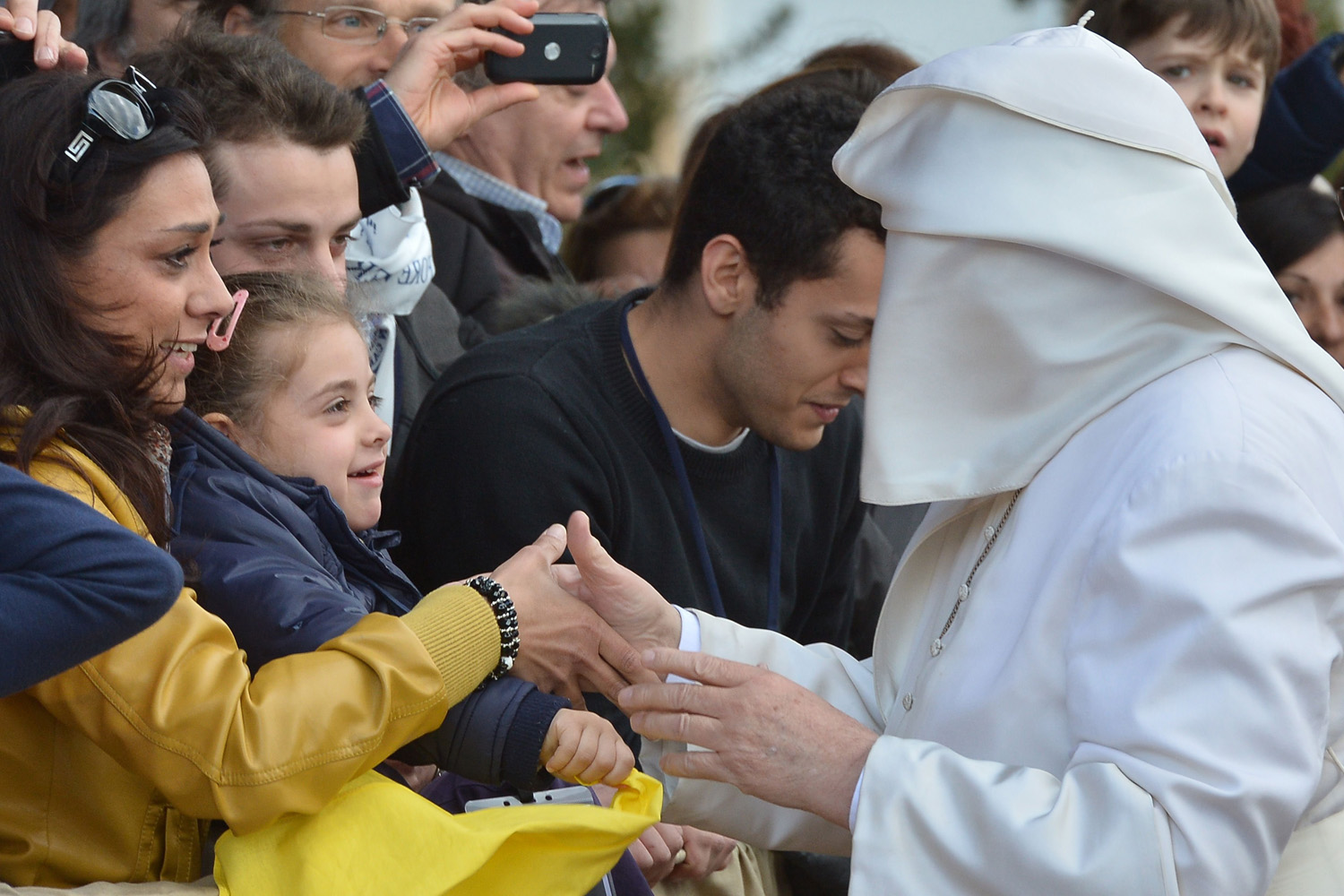
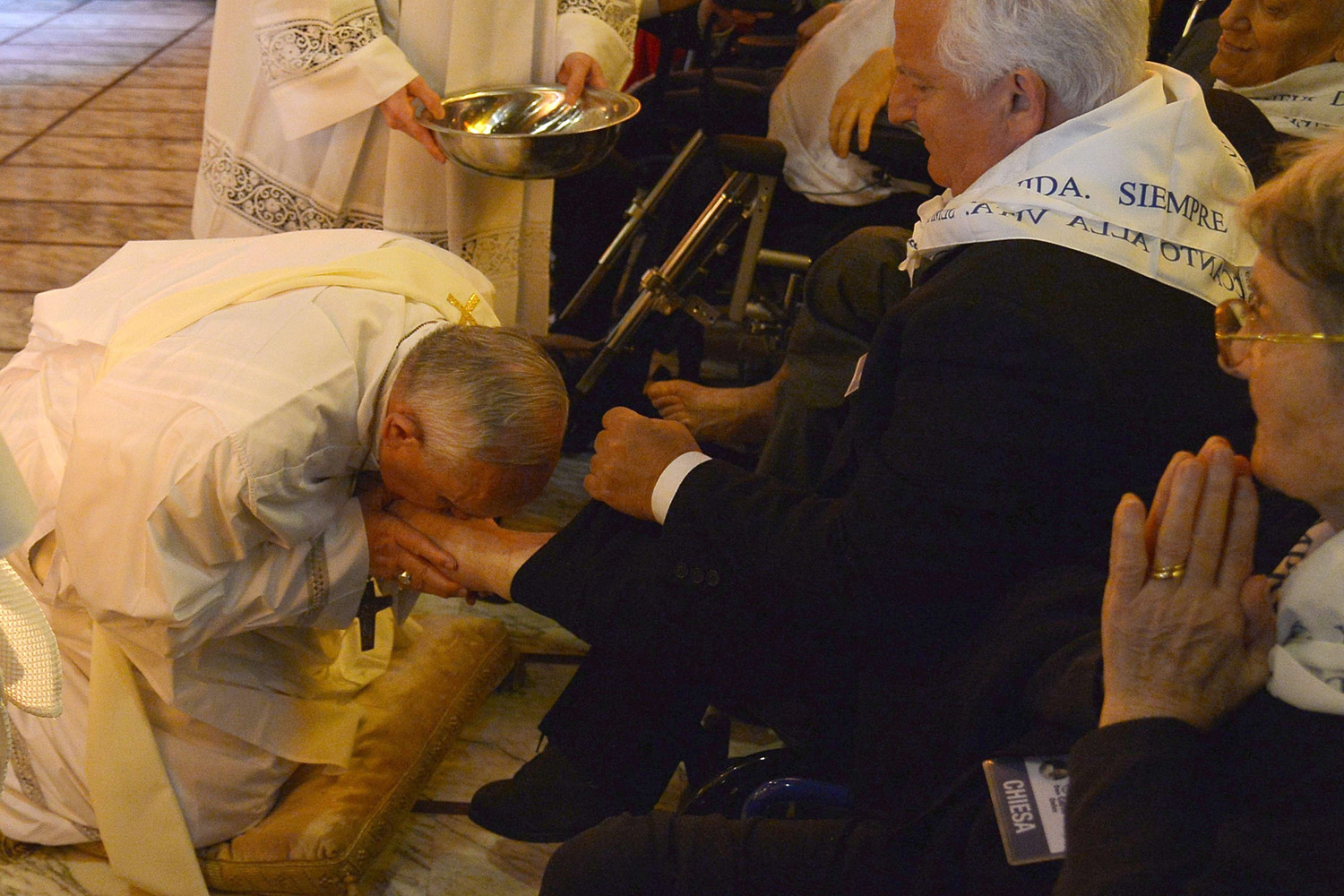
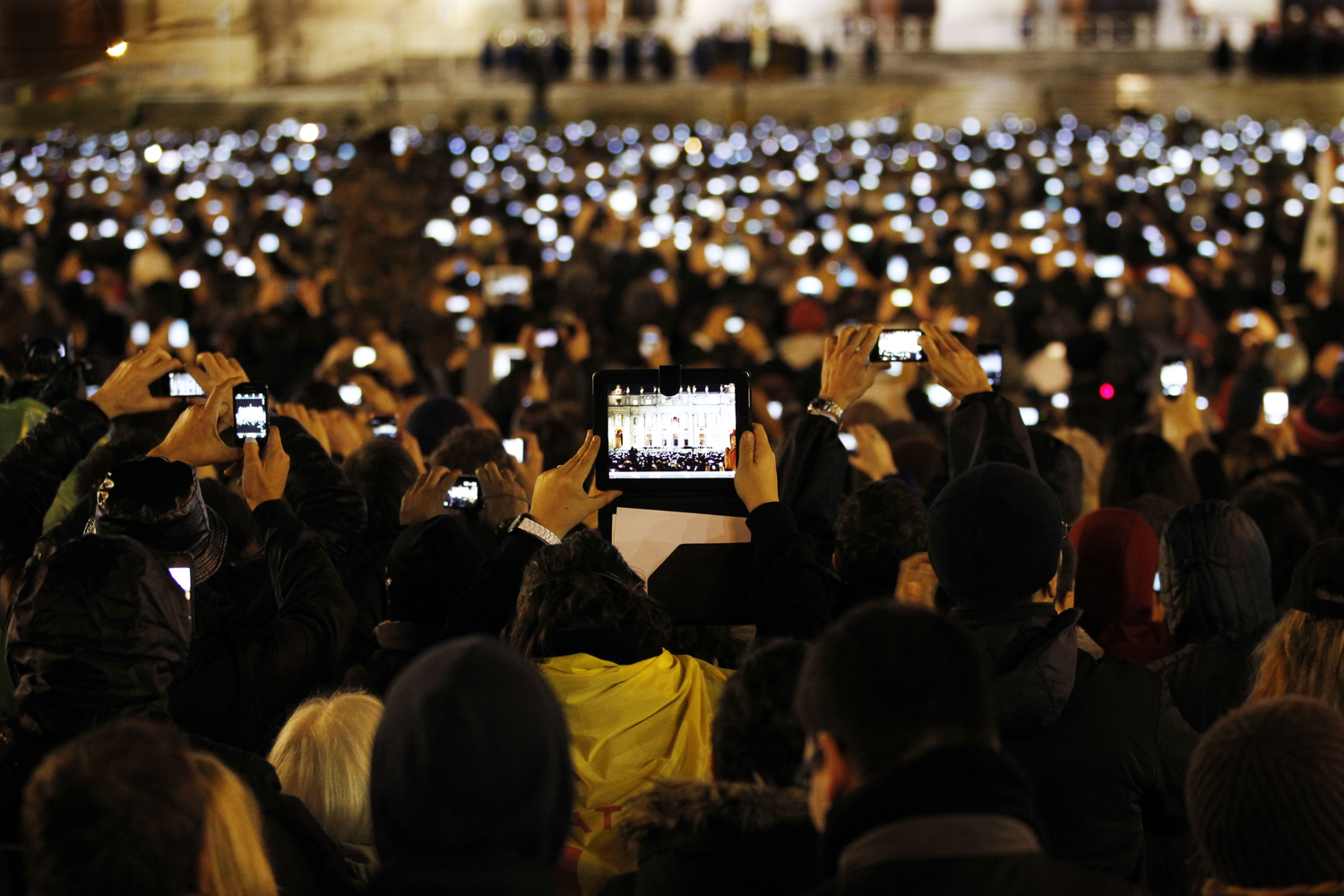
The Pope’s activism will be put to the test on his visit to the U.S. Rightly or wrongly, the U.S. is seen by many as a wellspring for some of the global ills he has attacked–corporate greed, colonial exploitation, economic inequality–and his pronouncements on everything from climate change to immigration are hot topics in Washington. “He’s put the church into a debate, which is pretty risky,” says Jim Nicholson, U.S. ambassador to the Holy See under President George W. Bush and Pope John Paul II. Francis will meet privately with Obama in the Oval Office, then address a joint session of the U.S. Congress, dominated by Republicans who oppose much of his international agenda and have openly criticized some of his anticapitalist rhetoric. Can Francis, with no army or global financial clout, leverage his popularity in the developing world to influence the great powers, especially the U.S.? “He is trying to figure out where to spend this enormous capital,” says Rhodes. “He has built up this position in the world, and I think he is trying to figure out how to pay it down.”
Francis’ strategy is bold, both on the world stage and within the Vatican. First, he is injecting himself into high-level diplomacy by taking controversial positions on the biggest issues of the day. His climate encyclical–timed to precede the upcoming U.N. Conference on Climate Change in Paris–pleased backers of aggressive action against global warming but worried conservatives. Its scope was wide: it talked about everything from individuals’ air-conditioning use to how environmental degradation is causing poverty and migration. And its language was confrontational. Calling for a “bold cultural revolution,” for example, Francis said the rich and powerful were pushing a model of development based on fossil-fuel consumption that ended up hurting the poor.
In the Middle East, the Pope has alternately pleased and disappointed all sides. His push for the Iran nuclear deal bolstered the White House but angered Israel. The Vatican recognized Palestinian statehood in June, infuriating Jerusalem, but chose not to support Palestinians’ effort to raise their flag at the U.N. before the Pope’s visit there this month.
On Sept. 8 he fast-tracked controversial Catholic marriage-annulment reform to make the process cheaper, faster and local, freeing up time so that bishops headed to a Synod next month in Rome can instead address issues like war and poverty. When violent unrest broke out in Venezuela last year, Cardinal Pietro Parolin, the Vatican’s Secretary of State who was previously the Holy See’s ambassador there, mediated talks between President Nicolás Maduro and the opposition that eventually fell apart.
Francis’ willingness to weigh in on hot-button issues is bolstered by his popularity around the world. “His use of what I call the moral megaphone, soft power, is being very effective,” says Nicholson. It helps that Francis is the first Pope to spread his message on social-media platforms. He tweets in nine languages and posts online video messages to Iraqi Christians. When he published his climate encyclical, he tweeted it 140 characters at a time for an entire day, earning tens of thousands of shares. As of last December, Francis was viewed favorably by 84% of those polled in Europe, 78% in the U.S. and 72% in Latin America, according to the Pew Research Center.
At the same time that he is making a splash in public, Francis is quietly altering the established order of papal diplomacy behind the scenes. For decades, the Vatican’s activities on the world stage have been directed by a specialized and highly trained set of church officials within the Roman curia. Francis has relied on his Secretary of State while greatly raising the profile of regional Catholic leaders, as he did by dispatching Ortega to the White House. At least two other Cardinals–Theodore McCarrick, formerly of Washington, and Seán O’Malley of Boston, who is one of Francis’ top advisers–acted as go-betweens at different points between Cuba, the U.S. and the Vatican. Ghanaian Cardinal Peter Turkson led the drafting process for the climate encyclical. The combination of a message of humility and an image as a Vatican disrupter is powerful, church experts say. “Francis has so much moral credibility because of the perception that he’s an outsider to the Vatican,” says Kathleen Cummings, director of Notre Dame’s Cushwa Center for the Study of American Catholicism, “and that he is coming from a different part of the world.”
That Latin American credibility is both hardwired and hard-won. Francis was a rising star in the church in the tumultuous world of right-wing dictatorship and populist Peronism that defined Argentina from the 1950s through the 1970s. His reputation and popularity survived the country’s “dirty war,” when between 10,000 and 30,000 workers, clergy and intellectuals disappeared in anticommunist witch hunts, some of them backed by Washington. A priest who was tortured by the military suggested Francis insufficiently protected him; another reconciled with him over the incident. Other priests said the future Pope worked behind the scenes to free them and to help them flee the country.
Above all, though, Francis’ views are grounded in Catholic social teaching that sees itself as above world systems, offering a corrective to both communism and capitalism. “As idealistic or as utopian as it may sound,” says Scott Appleby, dean of Notre Dame’s Keough School of Global Affairs, “he is siding with the victim, with the poor, with the detritus of international politics, frankly, the people who suffer the mistakes most directly of everything from climate change and corporate exploitation of natural resources to people caught in the cross fire of war.” And in a way most revolutionaries can only dream of, that view of the world from below is becoming his greatest asset as it increases his popularity across national boundaries.
But global popularity can go only so far. In the U.S., Francis’ approval dropped to 59% over the summer as many came to oppose the positions he has taken. While Obama and many Democrats praised the Pope’s climate encyclical, others, like GOP presidential candidates Jeb Bush and Rick Santorum, said he was in over his head. Francis is better off “leaving science to the scientists,” Santorum said. After Francis moved to recognize a Palestinian state, several members of Congress were openly critical. “The Pope is legitimizing a Palestinian state without requiring those who get recognition to recognize Israel as a Jewish state,” said Representative Jeff Duncan of South Carolina.
Within the Vatican itself, there are also some signs of dissent. Internal divisions on the Pope’s agenda are at most whispered in the Vatican, but they are heard, especially as Francis continues to elevate the diverse voices of local bishops from outside Rome. The curia at the Vatican has long been an entrenched Italian, and Western European, stronghold. Francis is making sure more things are done with local languages, people, bishops and concerns in mind. His encyclical features a myriad of local bishops’ conferences instead of relying heavily on doctrinal tomes. Dissent doesn’t surface on clear-cut foreign policy issues like protecting Christians in the Middle East, but it does on controversial ones like Cuba. Some Catholics in Florida, for example, are not happy with the Pope’s role in the U.S. opening to Havana.
Ultimately, many of the world’s problems simply aren’t responsive to the kind of soft power Francis is deploying, and the early results of his diplomatic strategy are mixed. When he visited Israel and the Palestinian territories last summer, he surprised the world by inviting both peoples’ Presidents to Rome for a historic prayer summit. Days after they prayed for peace in the Vatican gardens, Israel launched an offensive on the Gaza Strip. Francis defends his move. “That prayer for peace was absolutely not a failure,” he insisted to journalists as he returned from South Korea in August. “At present the smoke of the bombs, the smoke of wars, does not allow the door to be seen, yet the door has remained open from that moment.”
To his credit, Francis seems aware that opening a door to dialogue is unlikely to be enough in some cases. In Syria and Iraq, Christians face displacement and death as the al-Qaeda offshoot Islamic State of Iraq and Greater Syria (ISIS) continues to take and hold territory. Francis opposed military strikes in Syria in 2013–he wrote to Russian President Vladimir Putin during a G-20 summit to urge leaders to pursue talks–but in March the Vatican’s U.N. diplomat called for military force against ISIS. A decade of war has cut the Christian population in neighboring Iraq by two-thirds–in 2003 it was 1.5 million; today it is less than 500,000. When ISIS strongholds spread over Iraq last summer, Chaldean Catholic Archbishop Bashar Warda of Erbil had 620 families seeking shelter in his house alone, camping in his cathedral and gardens for two months. The Vatican, Warda says, helped raise $30 million for refugees.
One of the Vatican’s biggest diplomatic prizes, formal relations with China, remains out of reach, but there are signs Francis may be making progress. While the Holy See has long-established official ties with the exiled Chinese government in Taiwan, it has not had formal relations with mainland China for more than 60 years. Last August, China allowed a papal plane to fly in Chinese airspace for the first time when Pope Francis visited South Korea, and Francis sent President Xi Jinping a telegram, as is papal custom when flying over a country. Francis has declined to meet the exiled Tibetan leader, the Dalai Lama, although the Dalai Lama visited Rome in December and has been a big supporter of Francis’ environment encyclical. Chinese state television reported favorably on the Pope’s condolences after the chemical-plant explosion in Tianjin in August. China allowed the ordination of a Roman Catholic bishop in a diocese in central China in early August–the first to take place with the Vatican’s approval since 2012.
Even small victories can be short-lived. Vatican officials signed a framework agreement in early 2014 with the government of the small sub-Saharan country of Burundi, guaranteeing the legal status of Catholic doctrine in areas like marriage and church education. But the Burundi Catholic Church’s opposition to a constitutionally prohibited third term for President Pierre Nkurunziza has led to renewed confrontation. “Currently our relationships are not broken, but there is now a real cooling,” says Archbishop Simon Ntamwana of Gitega.
If the world’s toughest challenges are not yet bending to the Pope’s diplomacy, Vatican watchers are riveted by his attempts. One of his first moves as Pope was to replace the scandal-ridden Secretary of State, Cardinal Tarcisio Bertone, with the astute and youthful Parolin, who has been a behind-the-scenes mover for the Vatican on China, the Middle East and Latin America. “He has selected a good team,” says U.S. Ambassador to the Holy See Kenneth Hackett, and “he knows the issues because he is in constant dialogue with people. He picks up the phone and calls people.”
Photographing Pope Francis, TIME’s Person of the Year in 2013
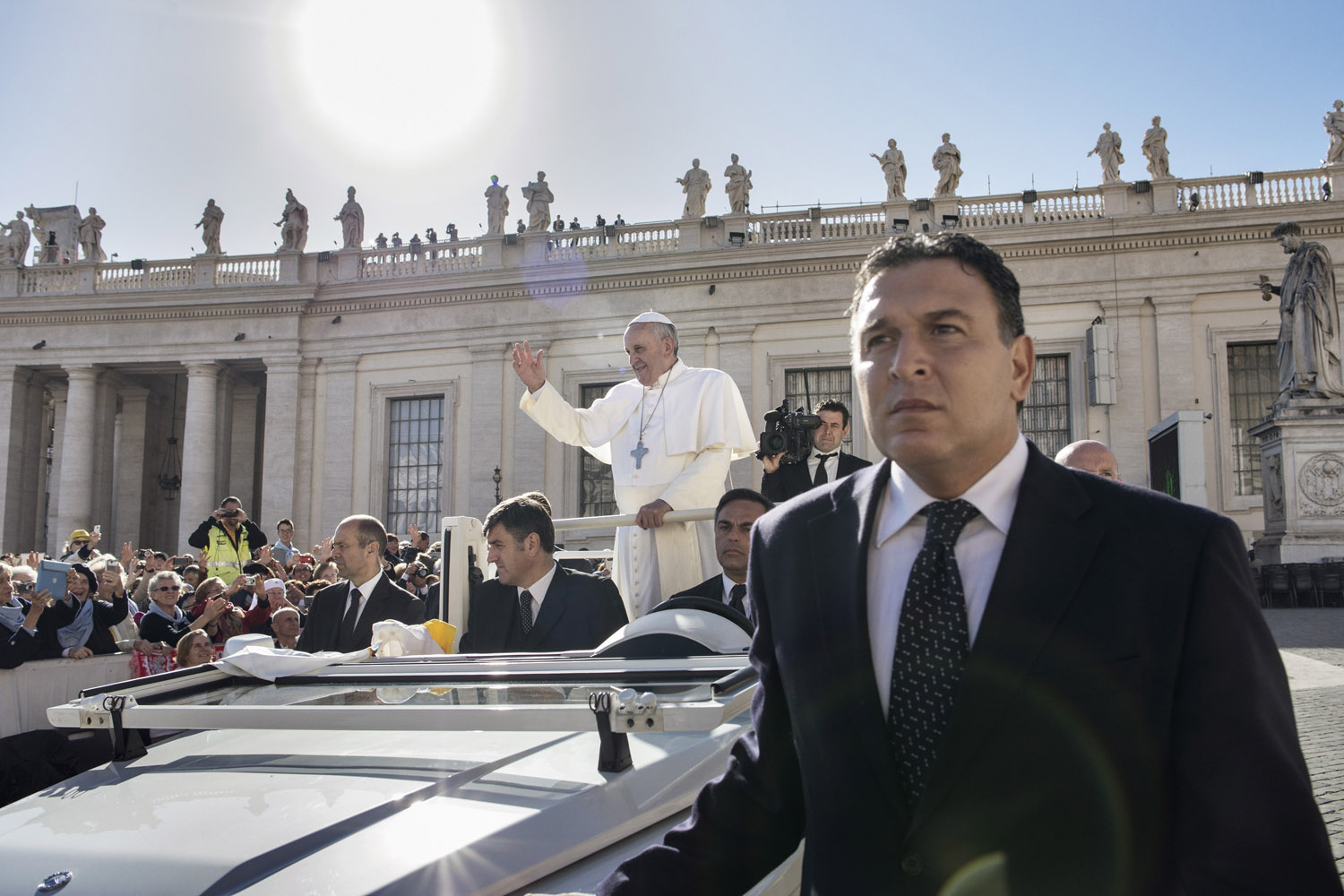
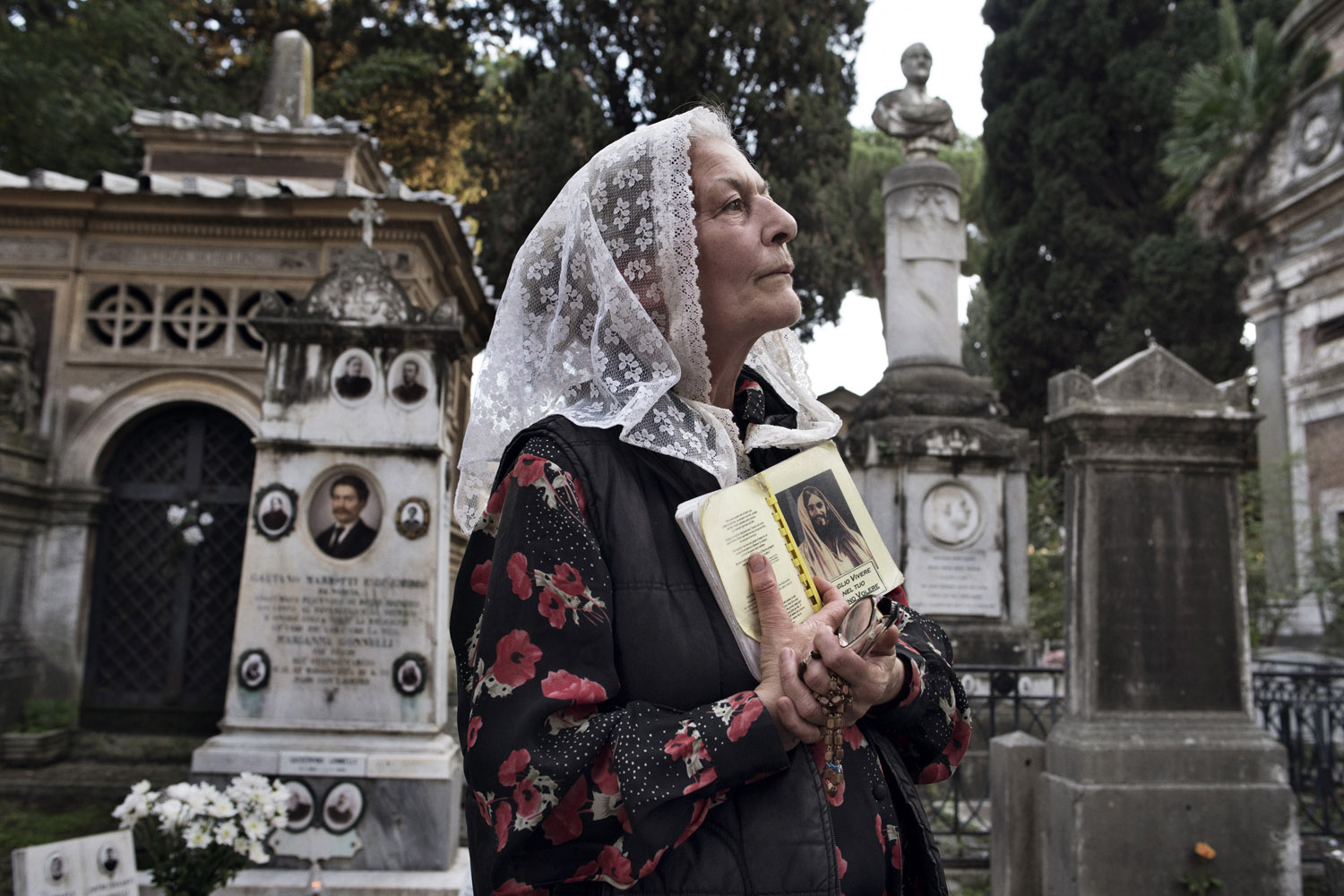
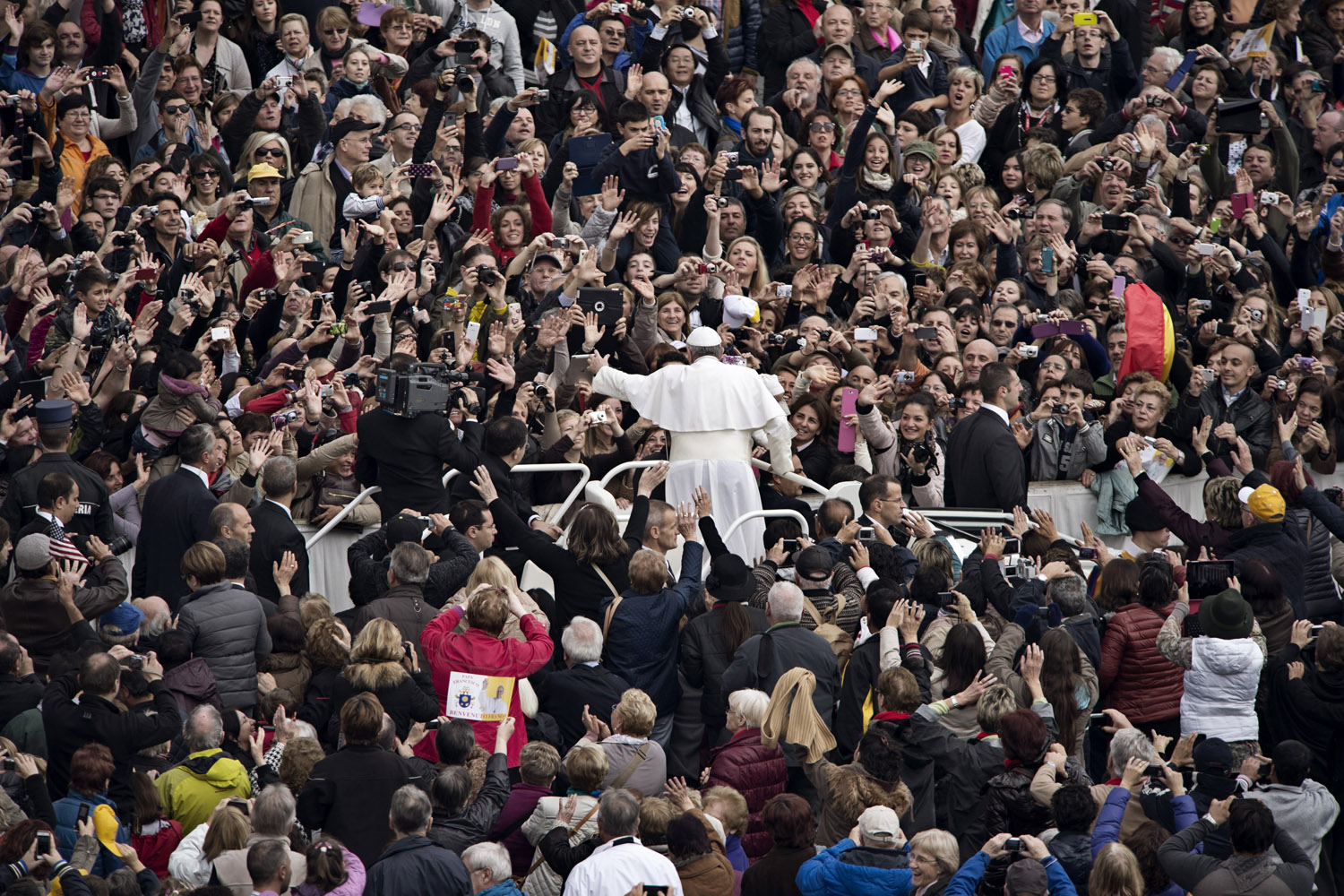
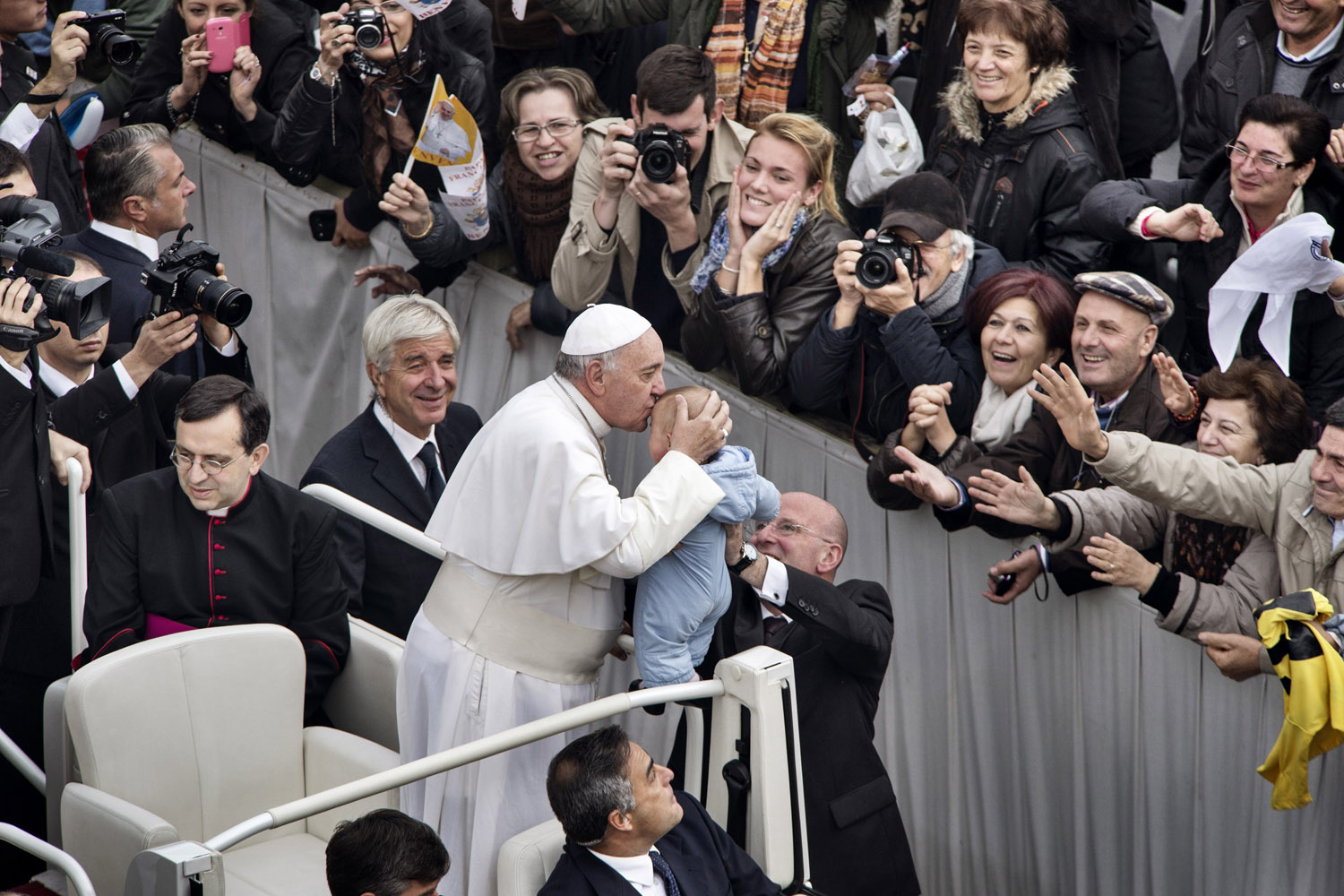
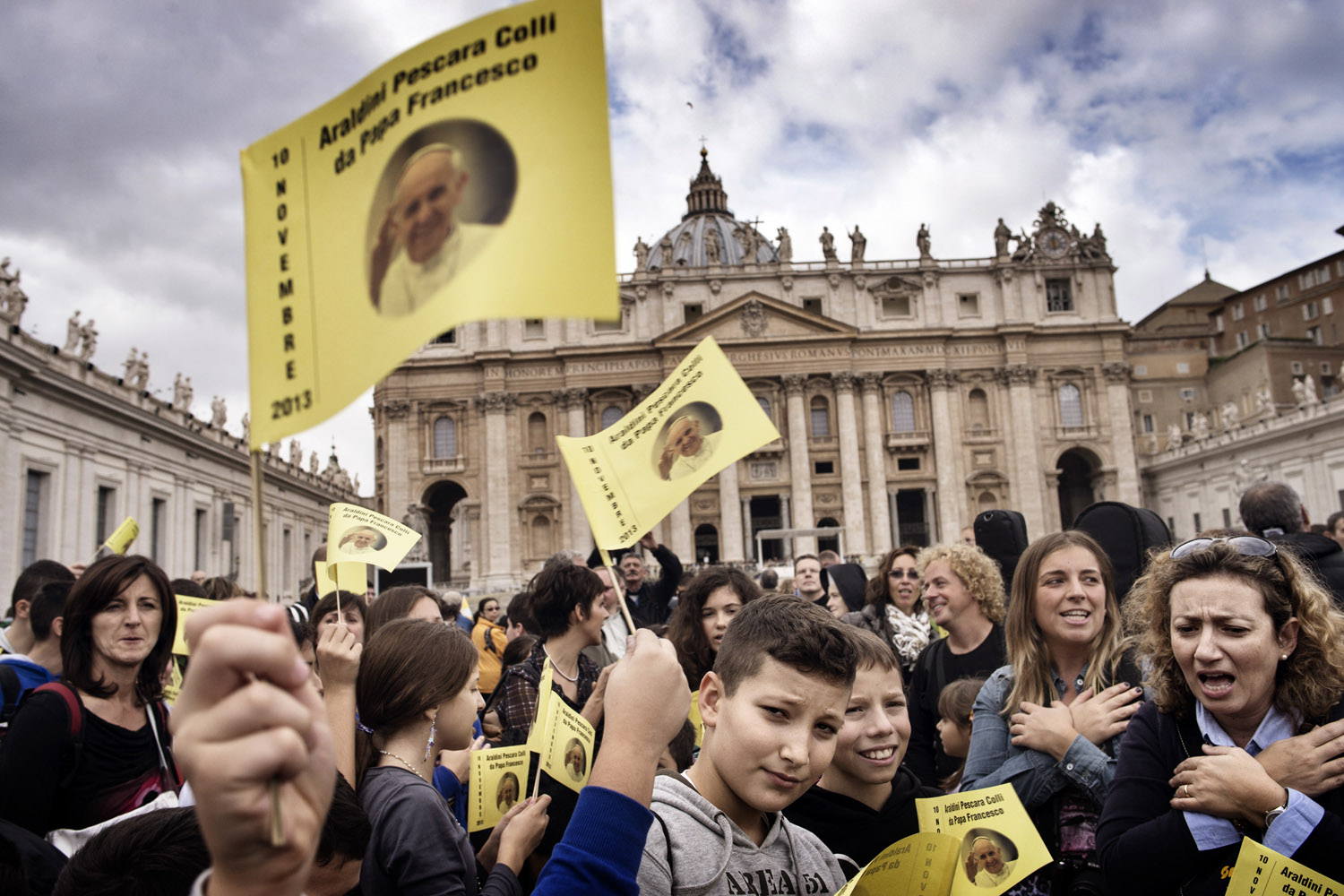
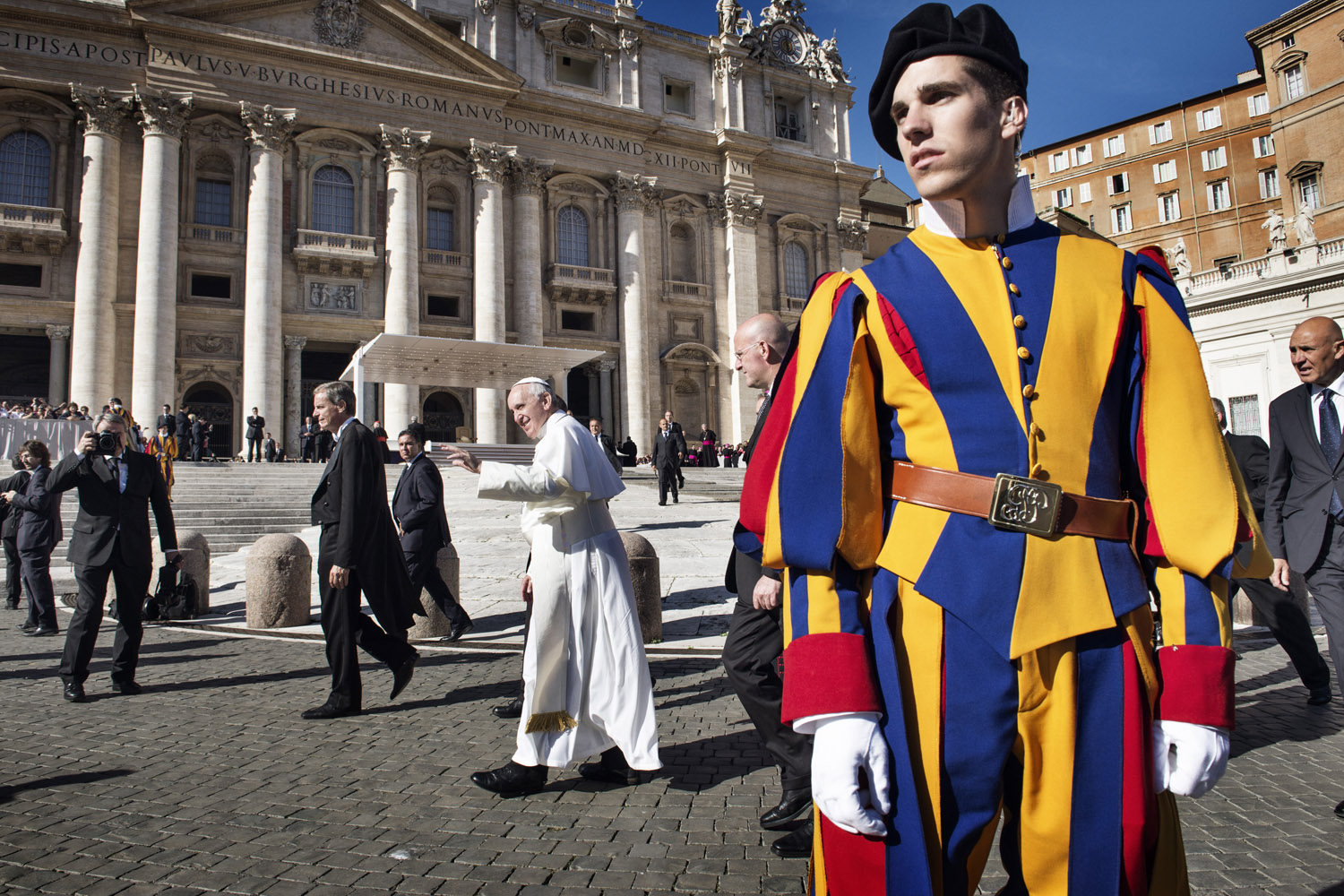
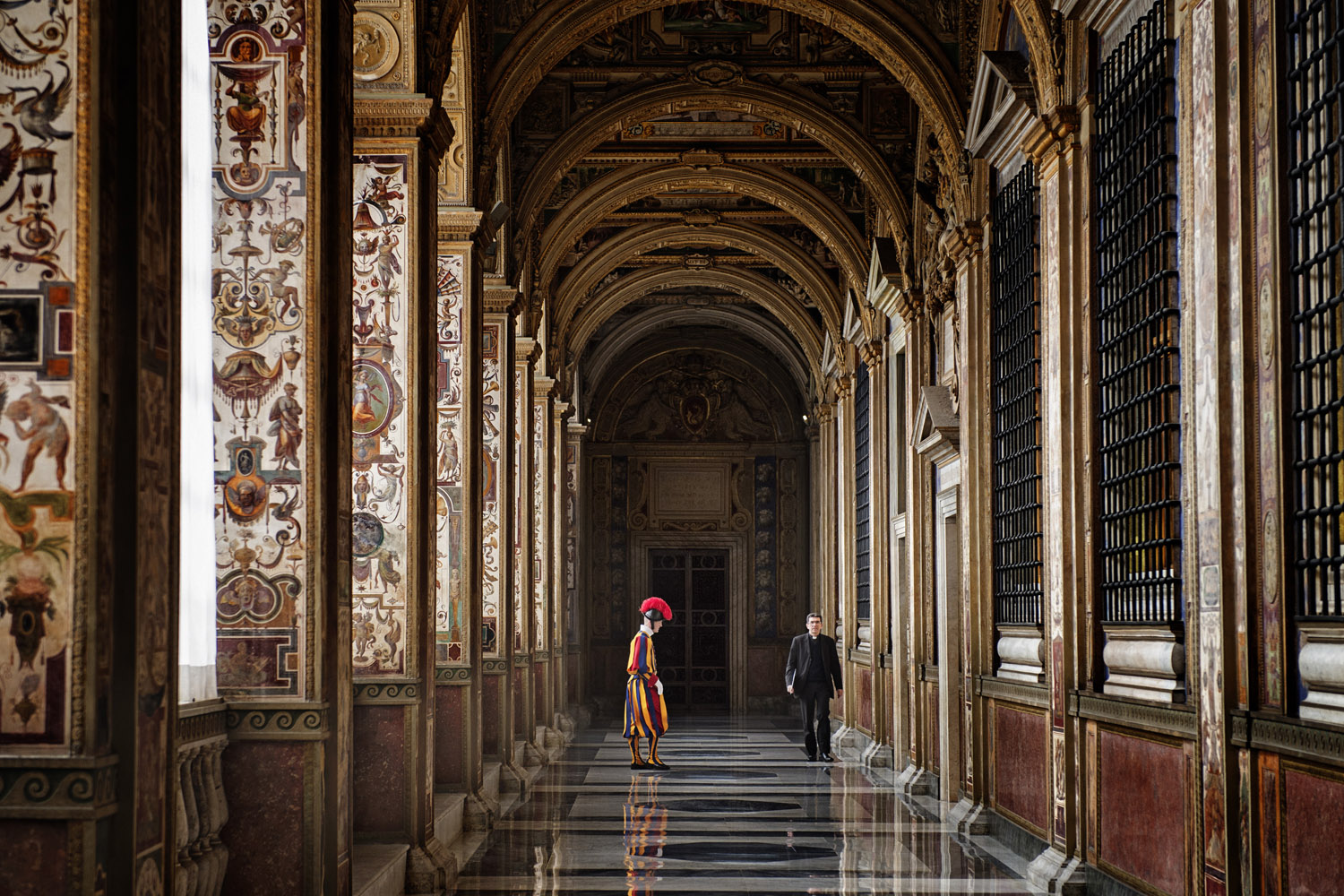
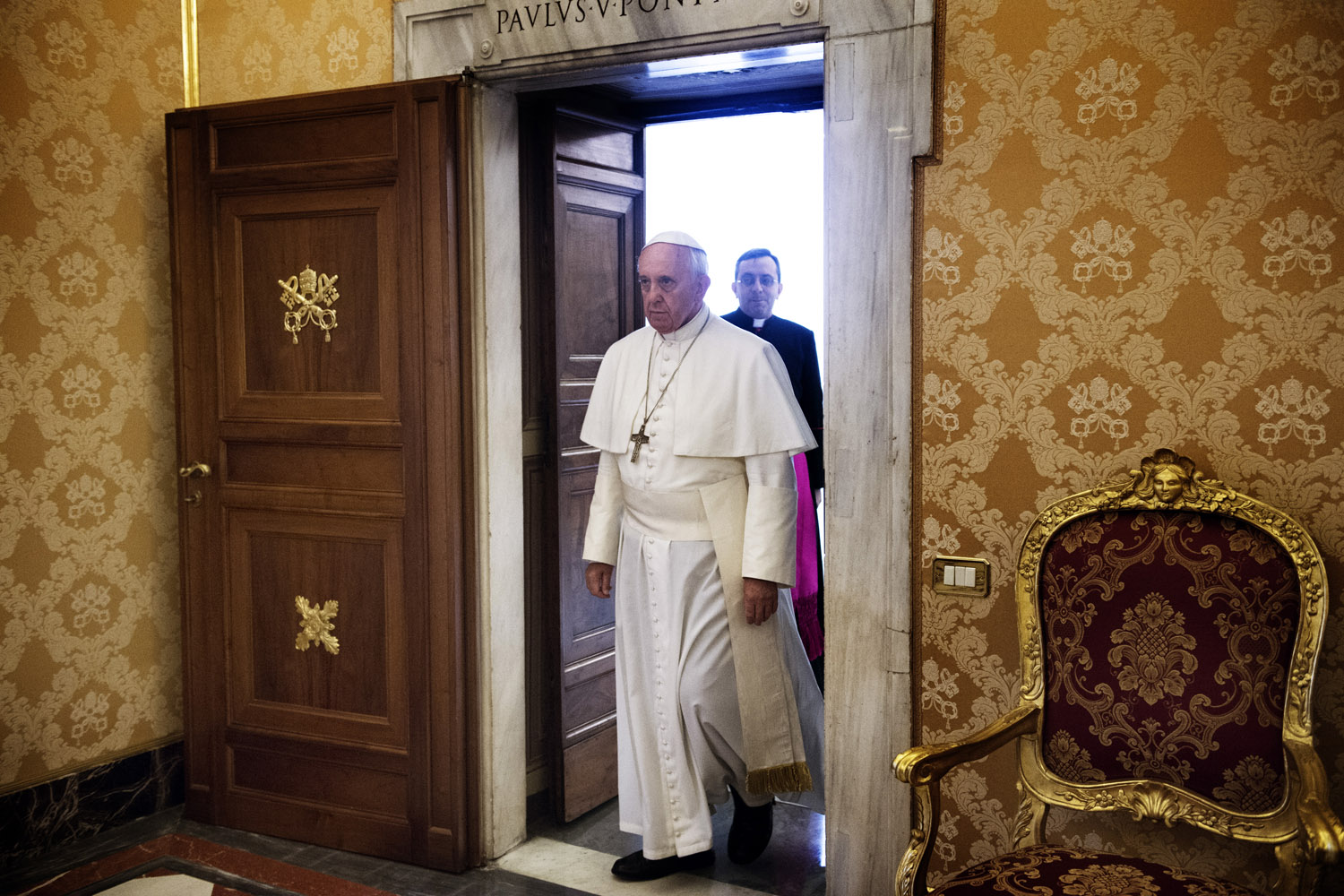
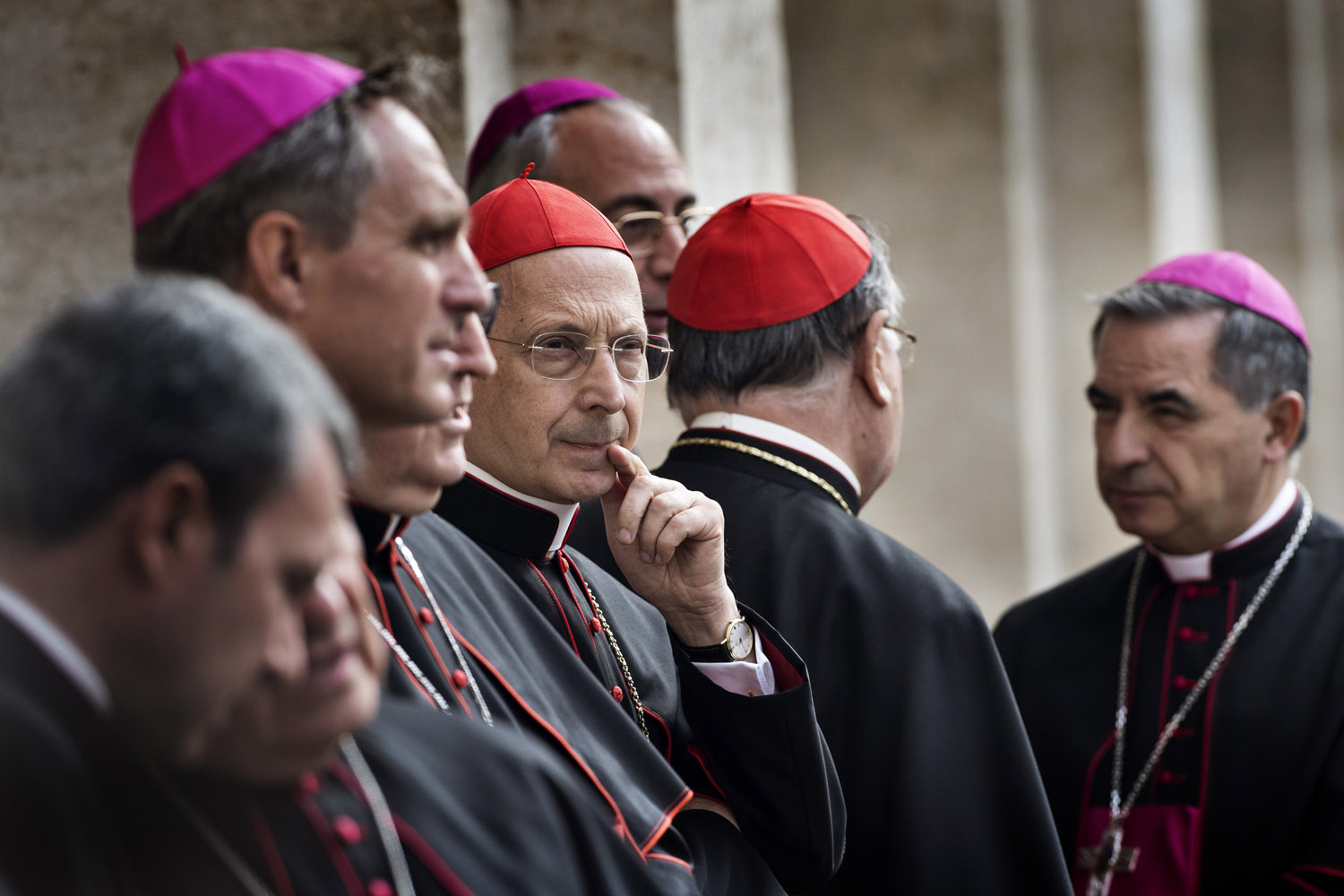
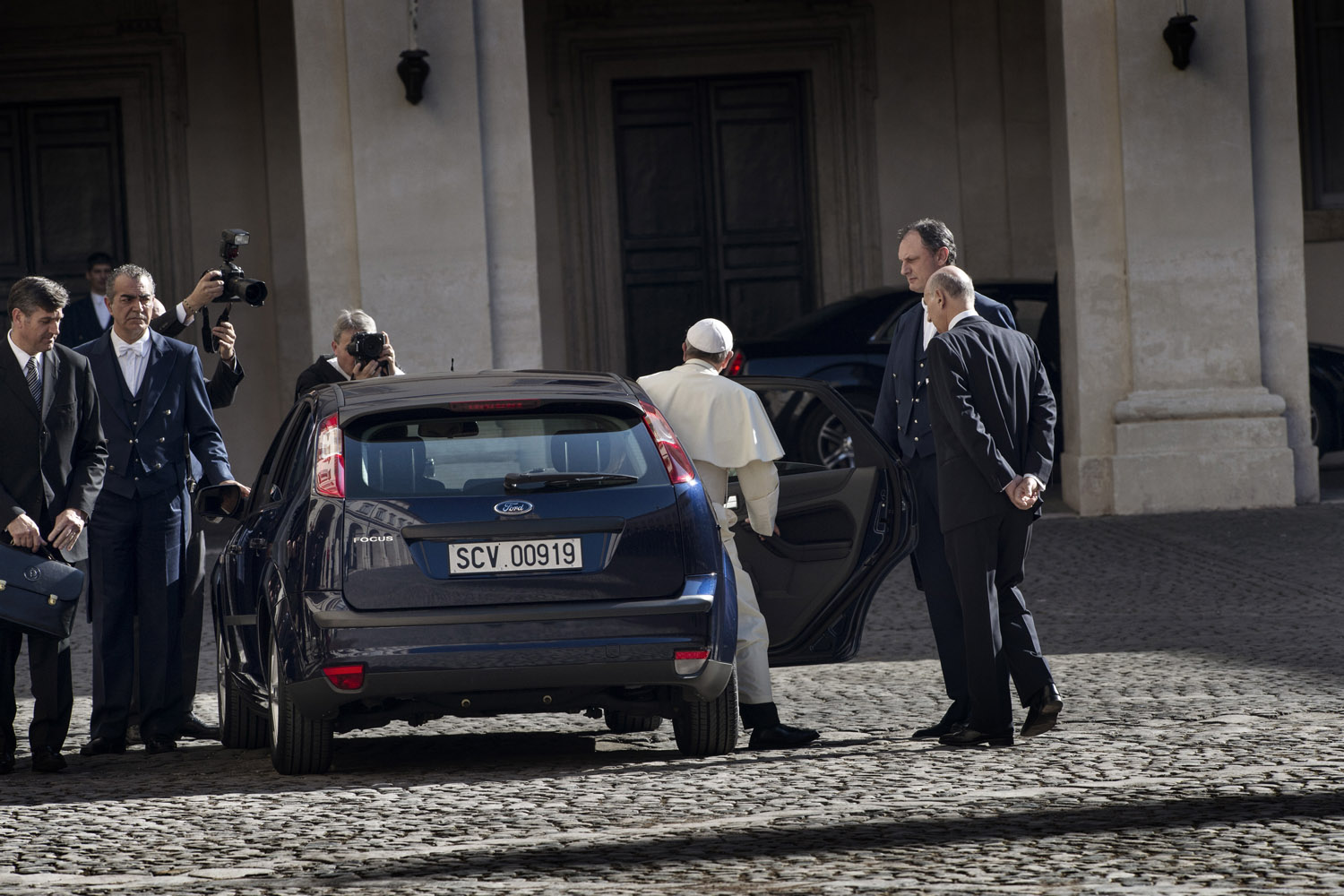
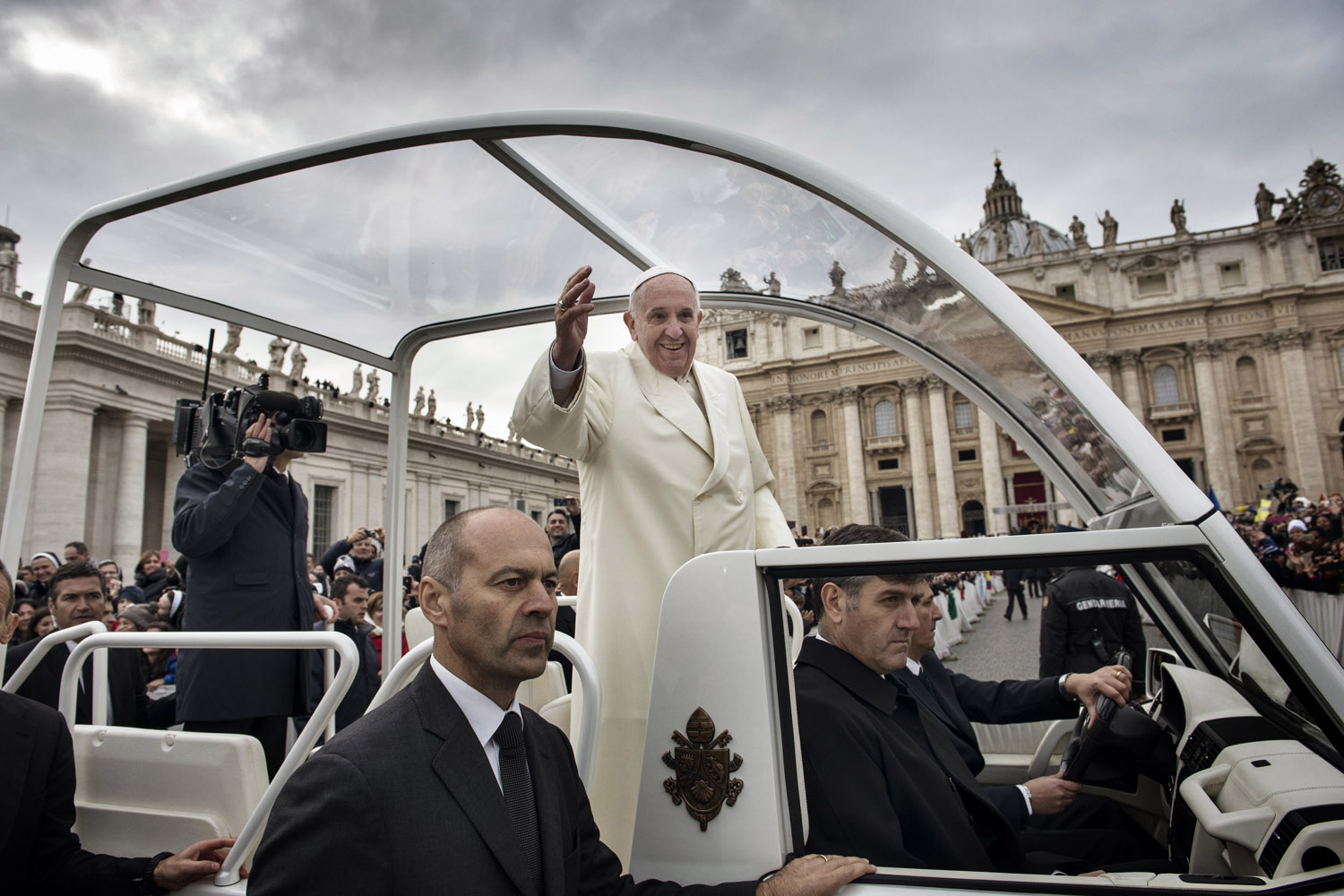
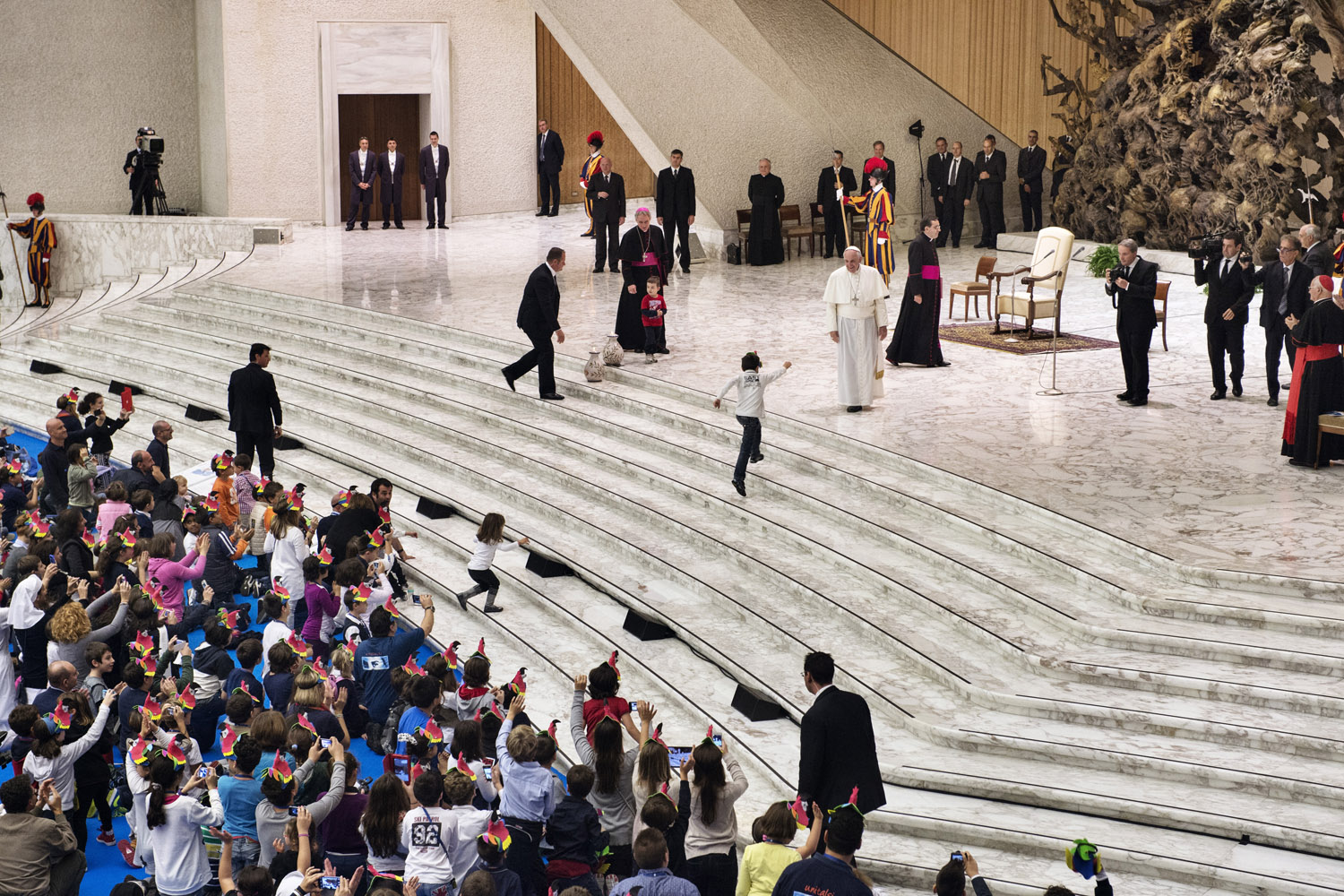
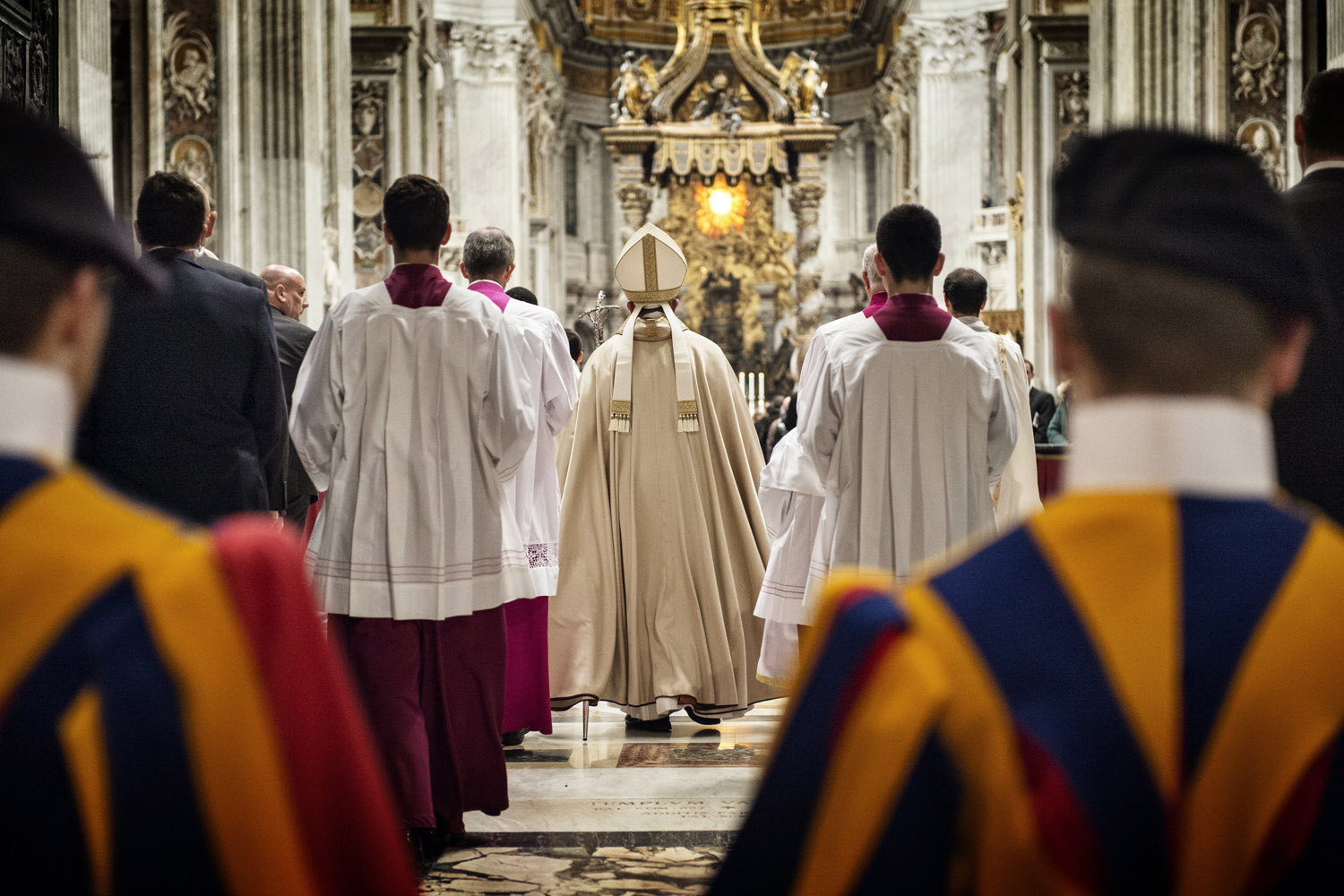
He is also a keen observer of the internal politics of countries he visits, says Hackett, and that pays off in return, yielding access and influence for his diplomats. So far this year, five top officials from the U.S. State Department have scheduled visits to the Vatican, including Under Secretary Rose Gottemoeller to discuss nuclear issues, Deputy Secretary of State Anthony Blinken and special representative Tom Shannon. In side conversations during the Cuba talks, the Vatican raised concerns to U.S. officials about the persecution of religious minorities, especially in Iraq. When U.S. Assistant Secretary of State Sheba Crocker, who handles U.N. issues at State, visited the Vatican in May to discuss climate change and Pope Francis’ 2015 development goals, her conversation with the Vatican’s deputy foreign minister turned to Burundi.
That in turn means countries are asking Francis for things too. As part of Obama’s efforts to close the military prison at Guantánamo Bay, the Administration has repeatedly sought the Vatican’s help in finding countries that are willing to take prisoners, current and former Administration officials say. And the White House would like to see Francis press the Cubans on democratic reforms and congressional Republicans on lifting the U.S. embargo against the country. When it comes to the diplomatic progress he helped foster between the U.S. and Cuba, Rhodes says, Francis “can point out that the work is not done.”
The same can be said of Francis’ own global agenda. But given his success so far–and the scope of his ambitions–there’s little doubt of this Pope’s ability to use the little things to advance big changes.
More Must-Reads from TIME
- Why Biden Dropped Out
- Ukraine’s Plan to Survive Trump
- The Rise of a New Kind of Parenting Guru
- The Chaos and Commotion of the RNC in Photos
- Why We All Have a Stake in Twisters’ Success
- 8 Eating Habits That Actually Improve Your Sleep
- Welcome to the Noah Lyles Olympics
- Get Our Paris Olympics Newsletter in Your Inbox
Contact us at letters@time.com